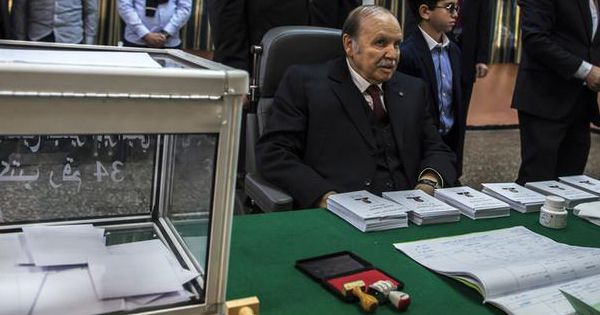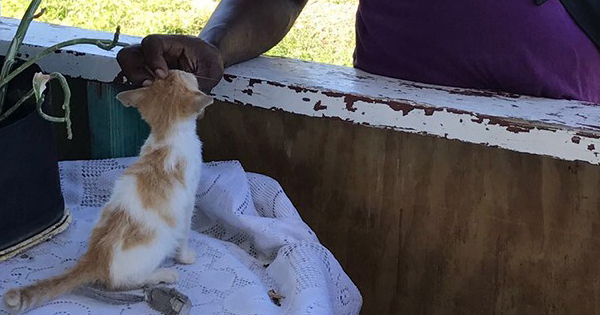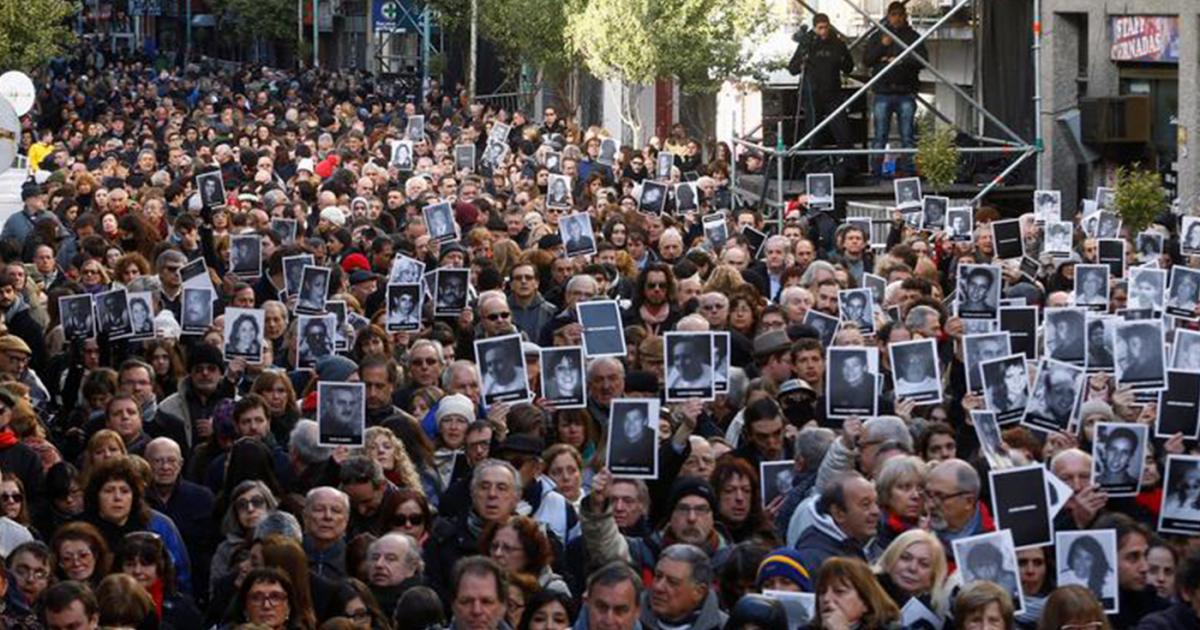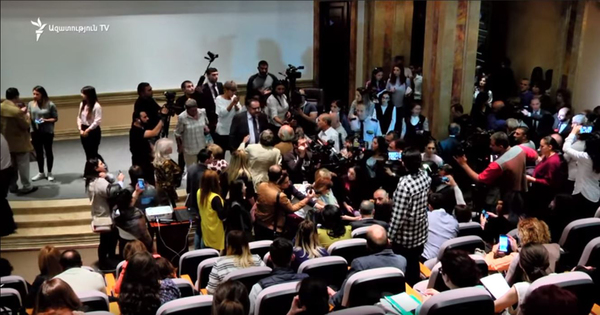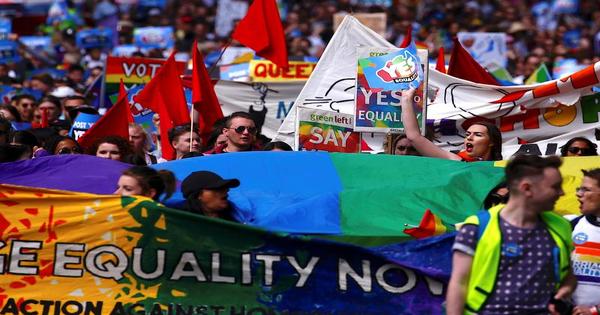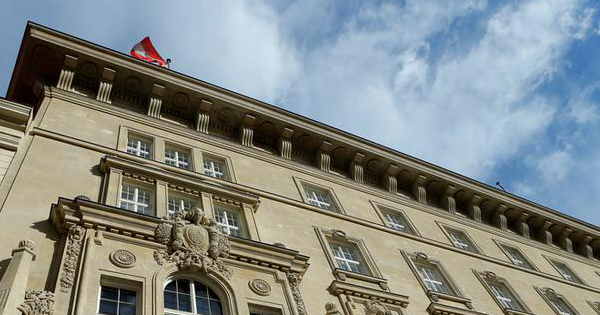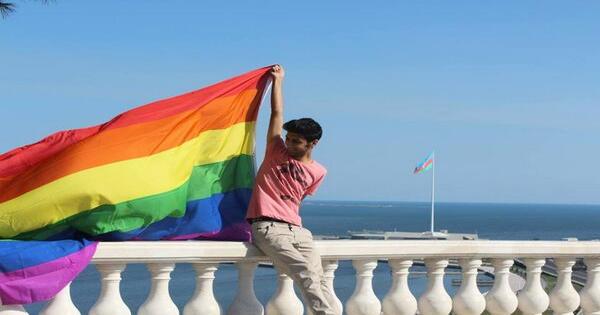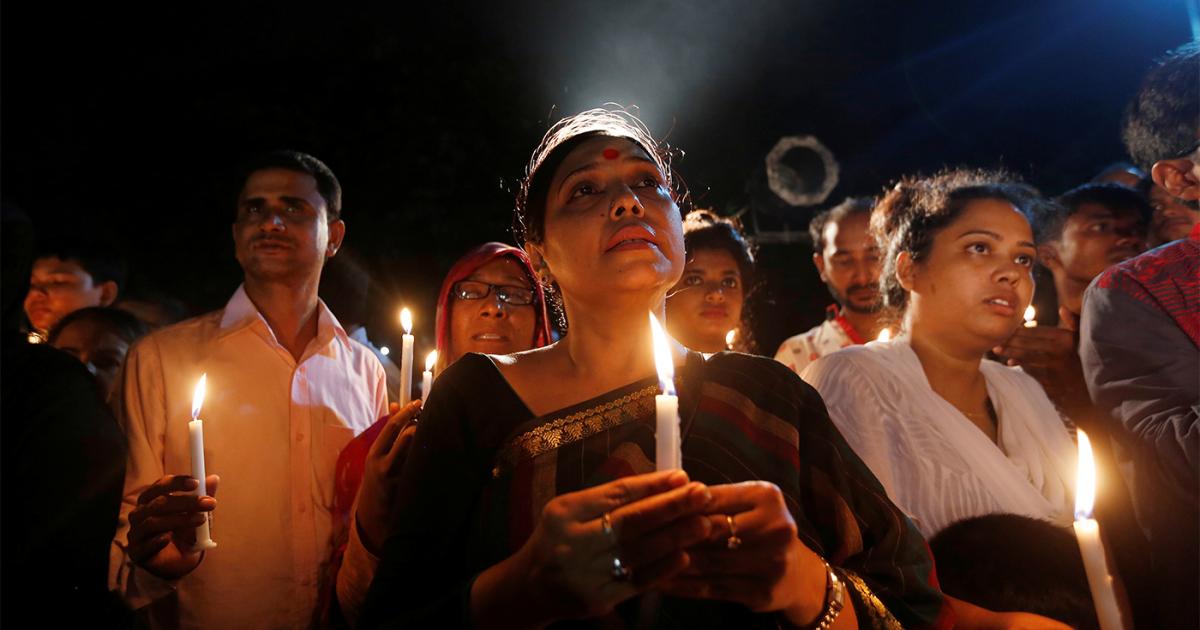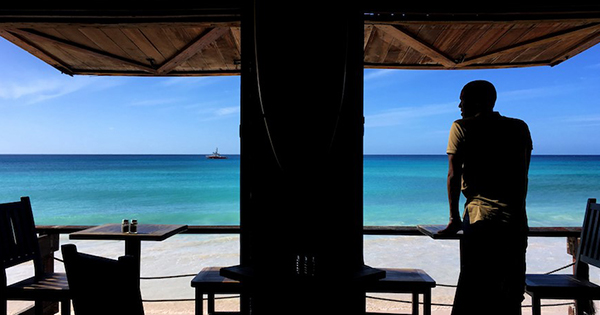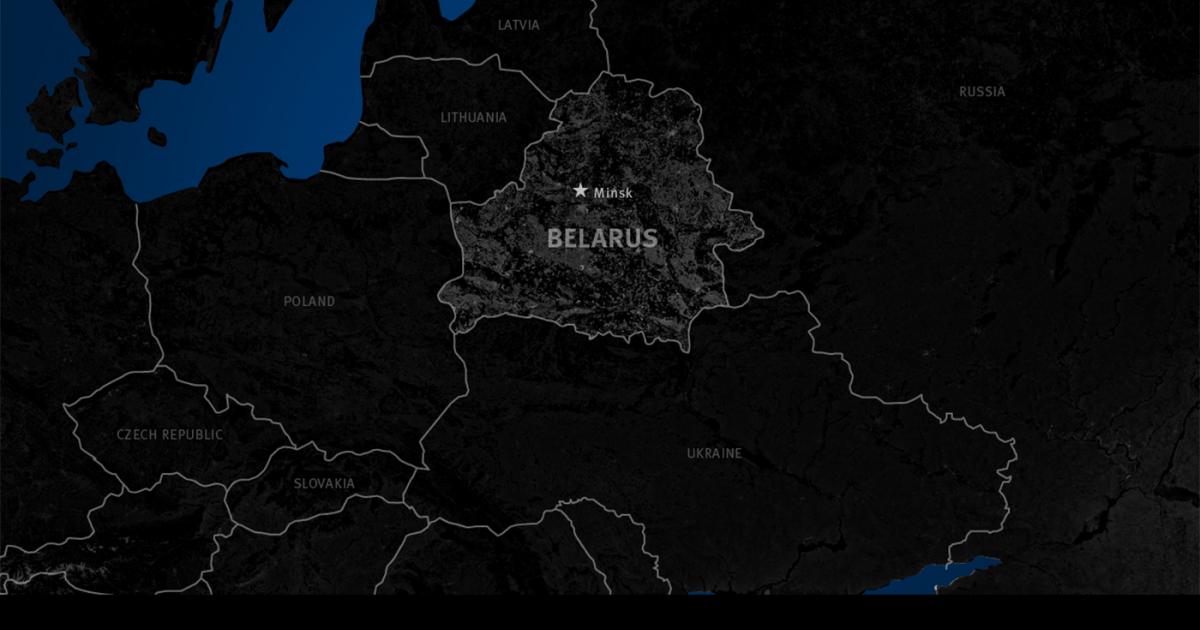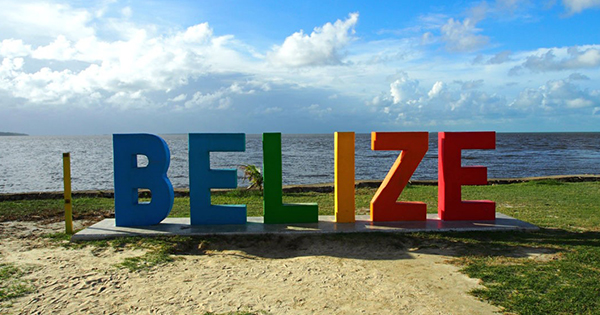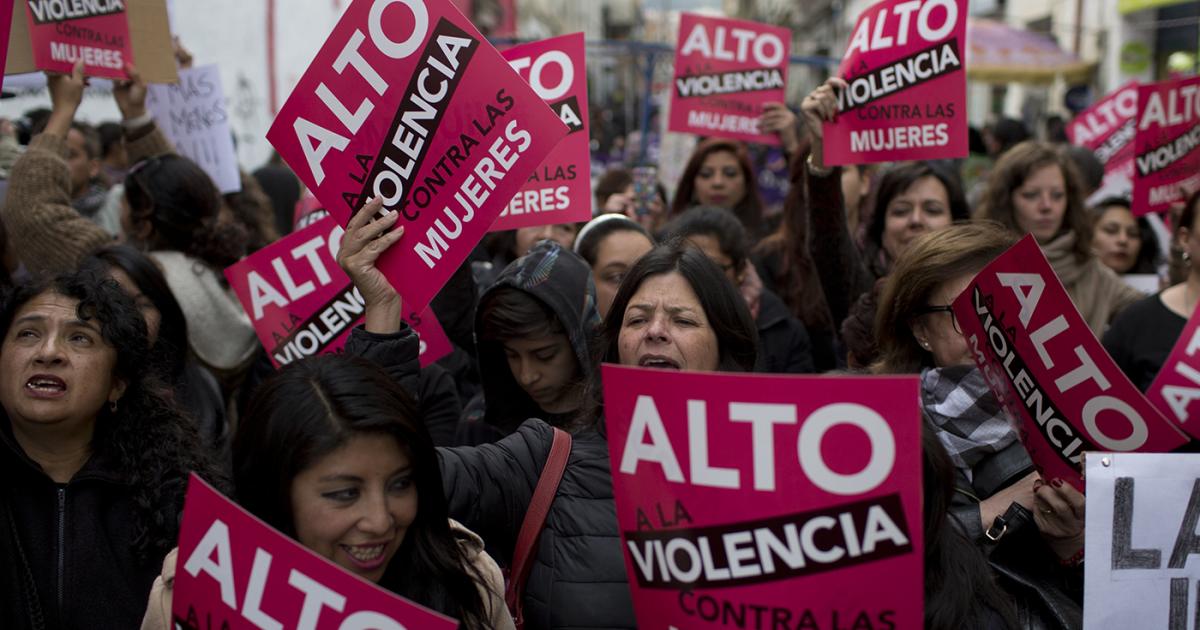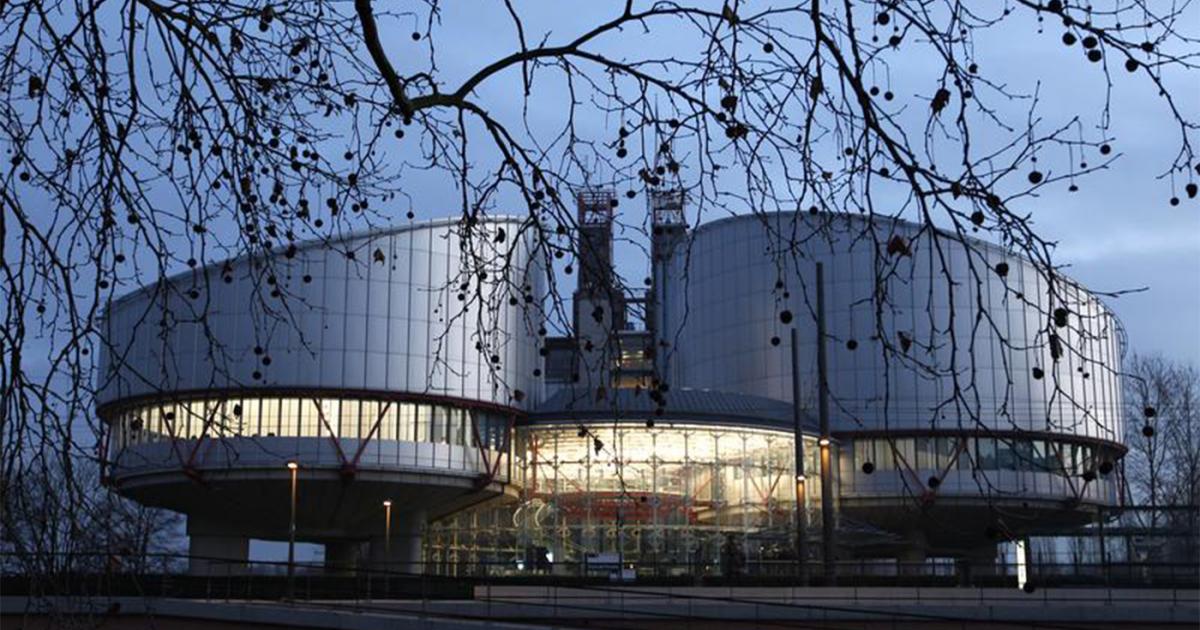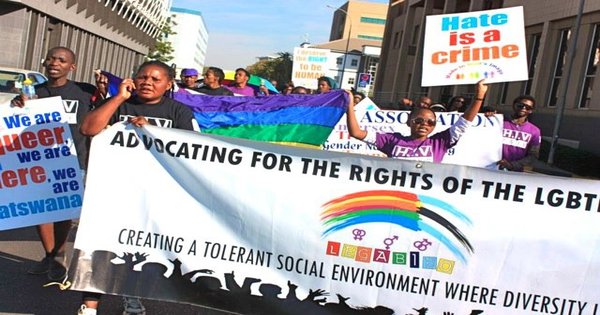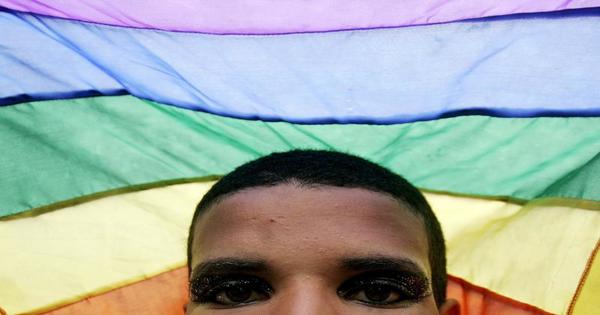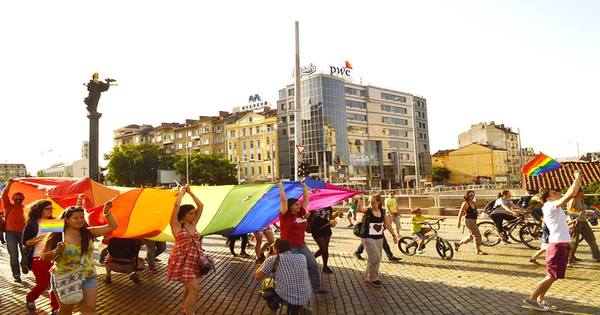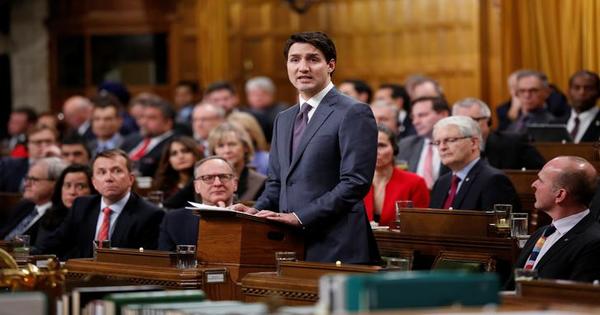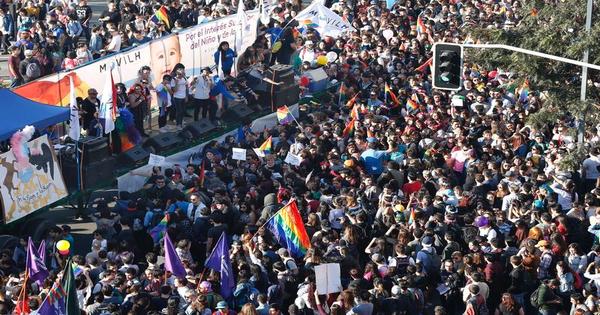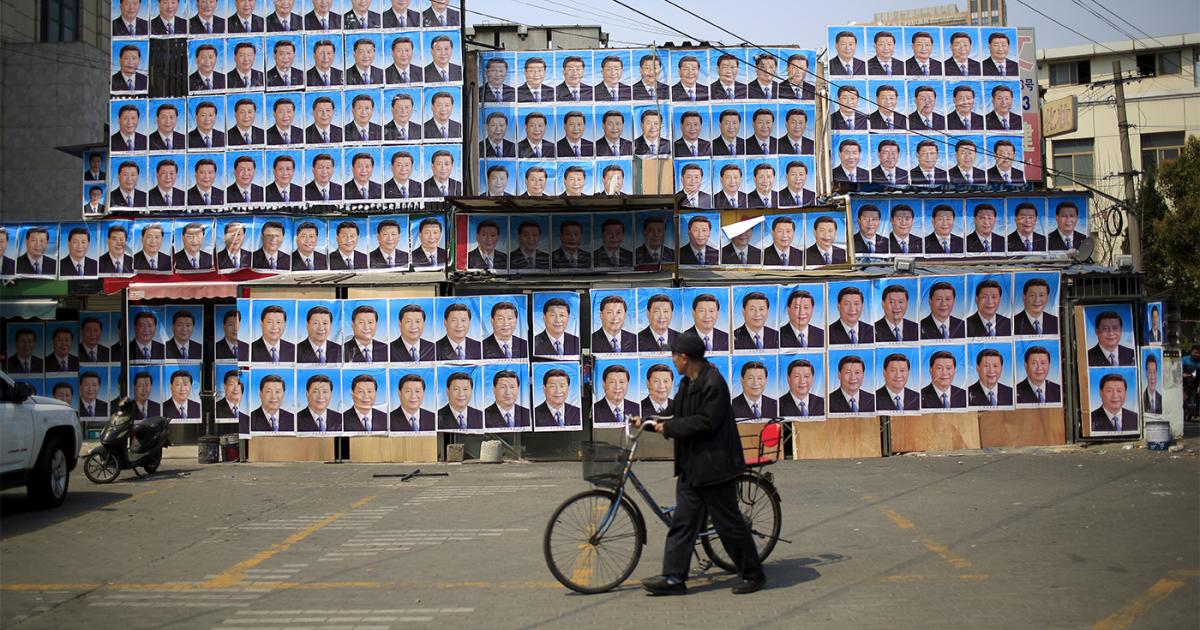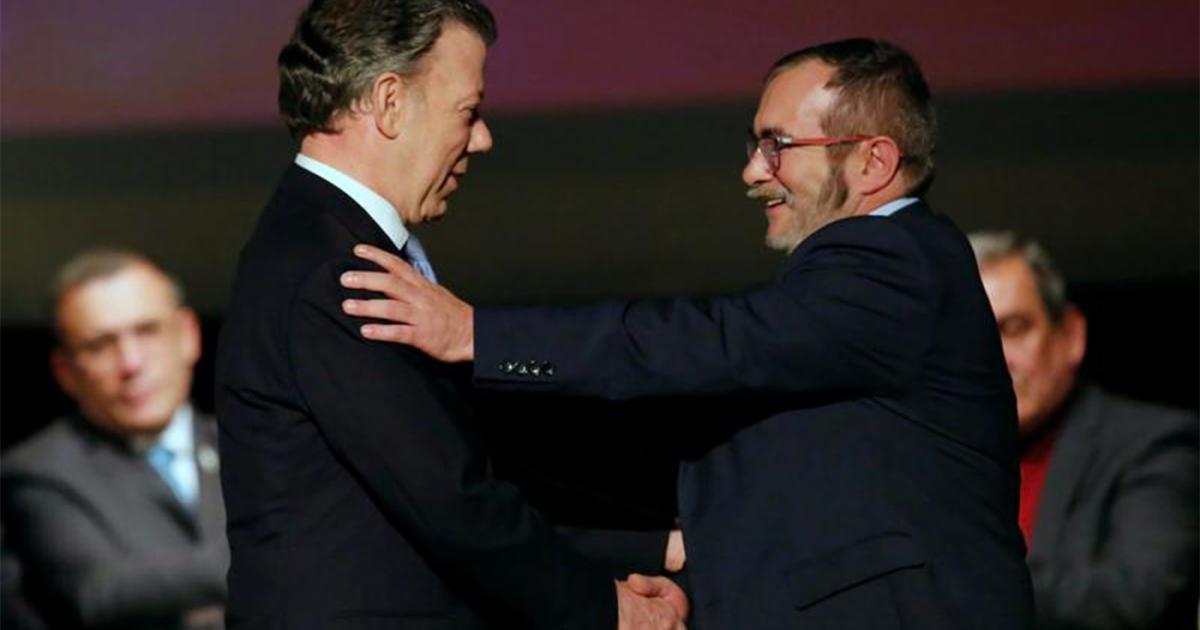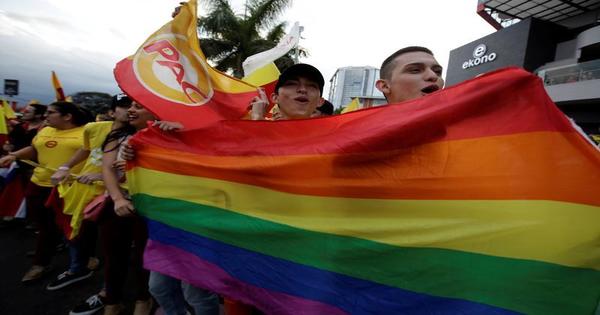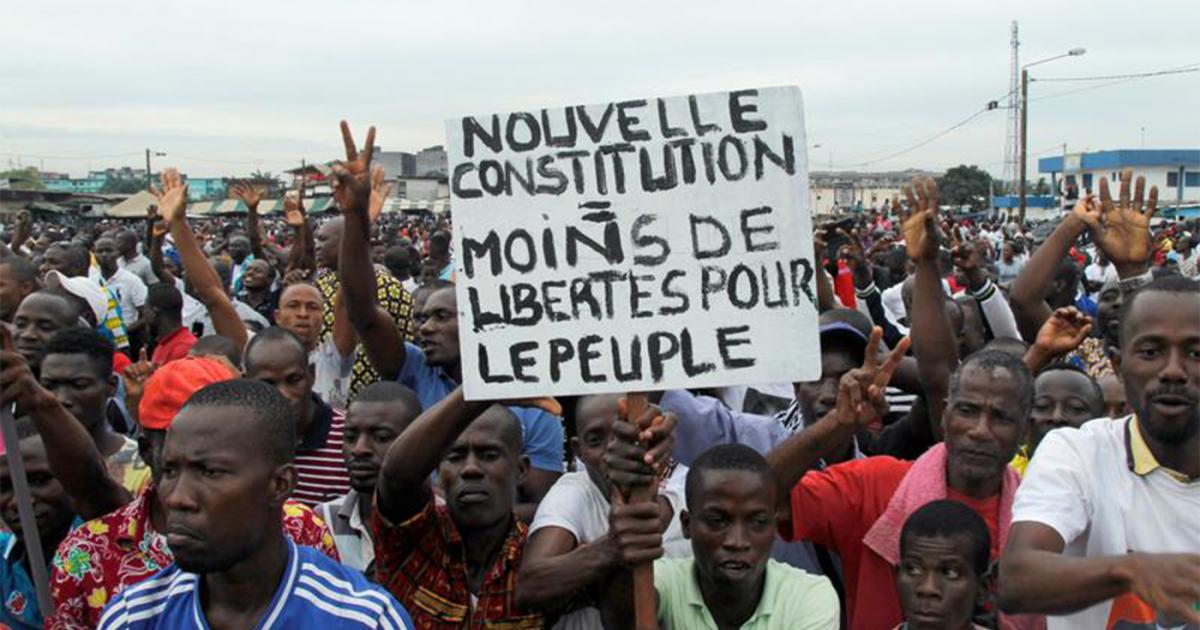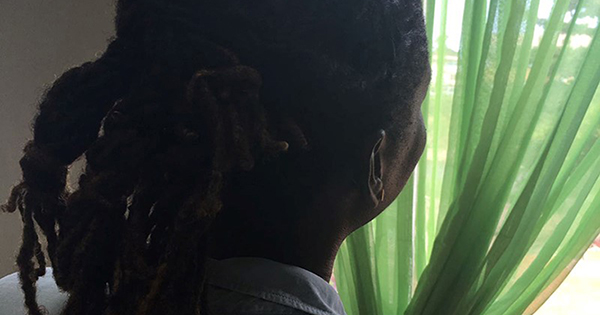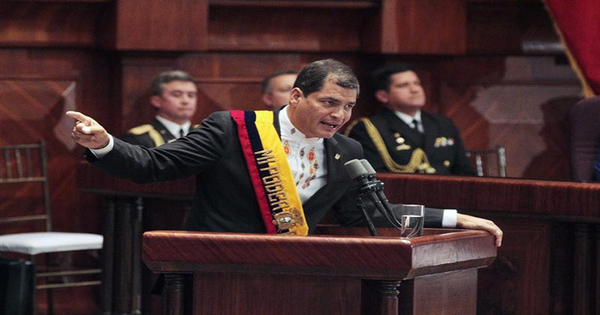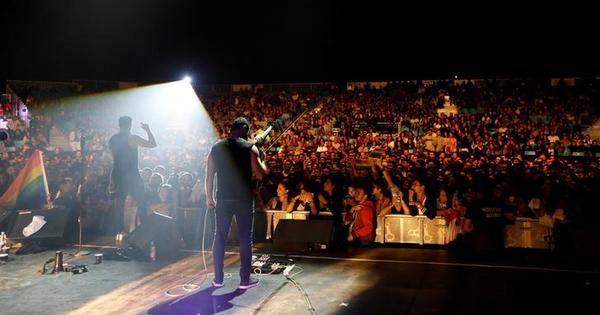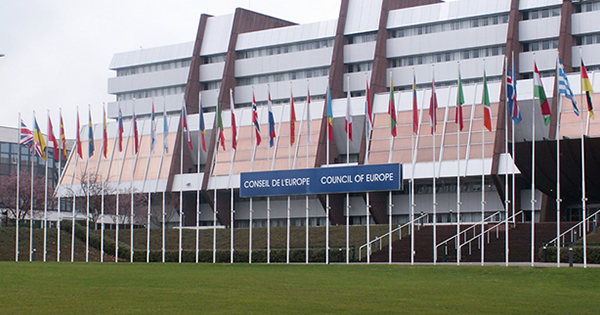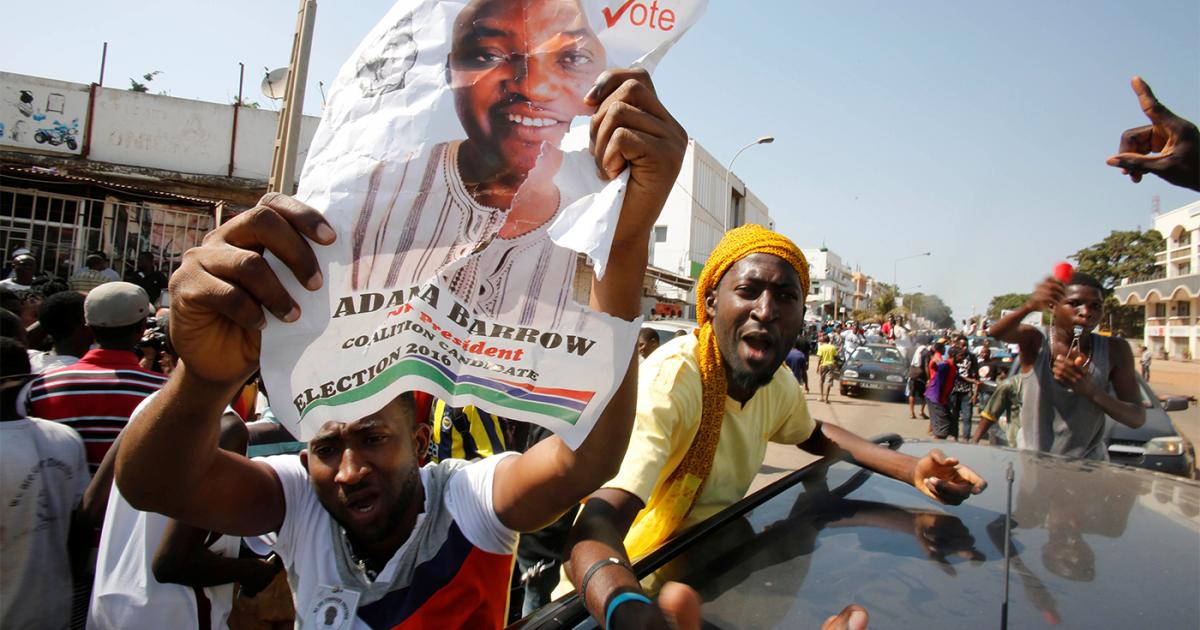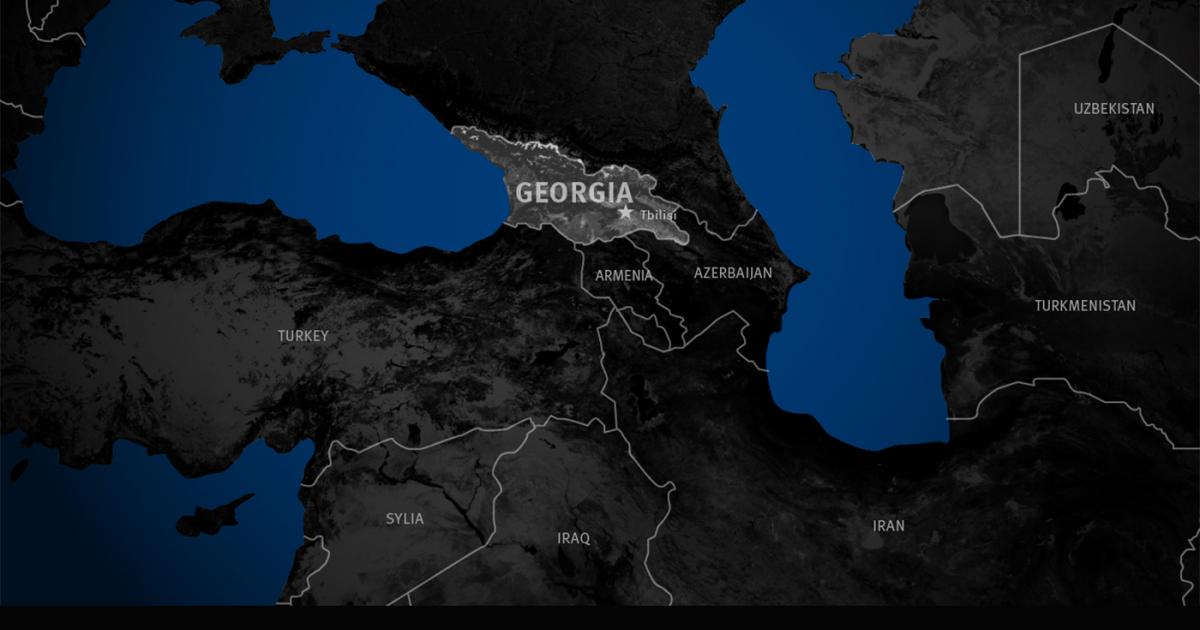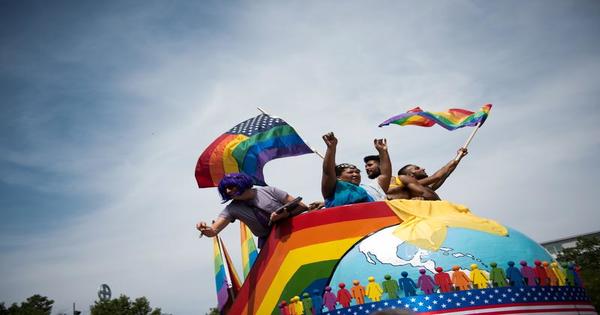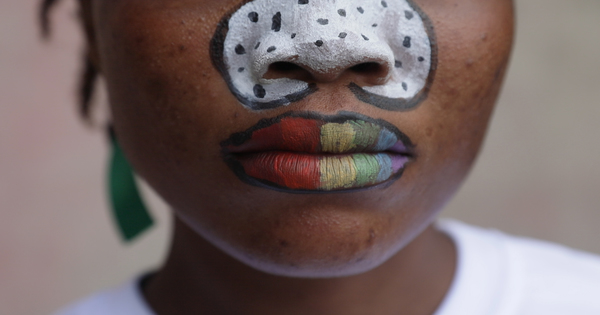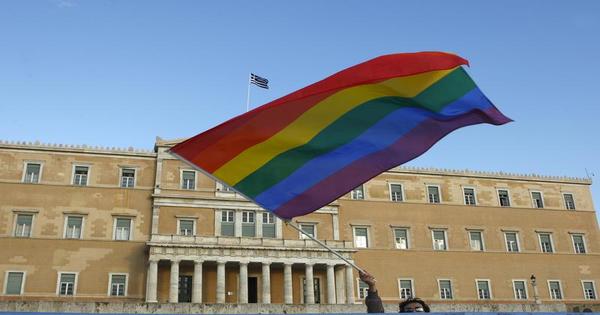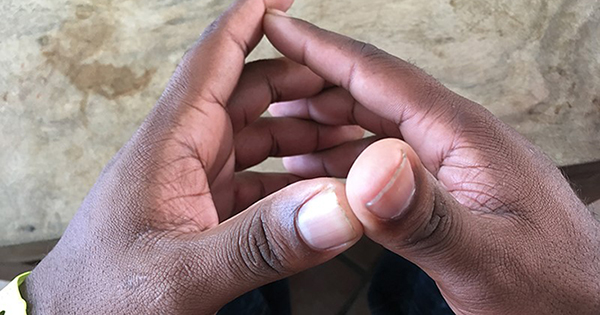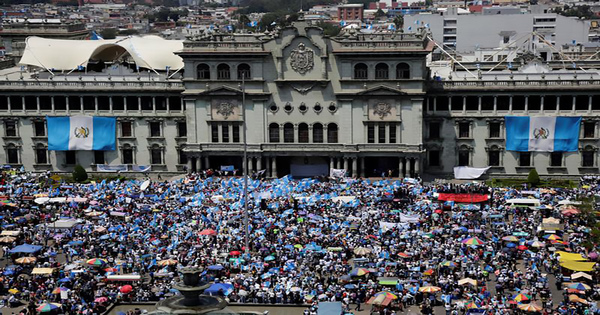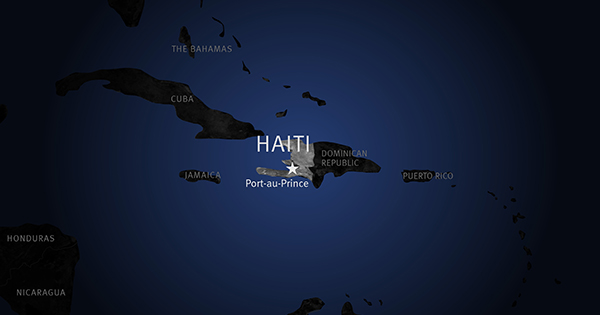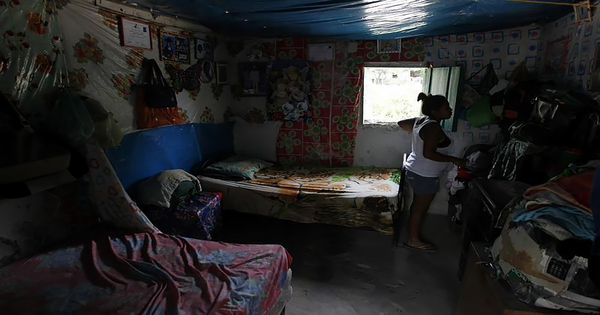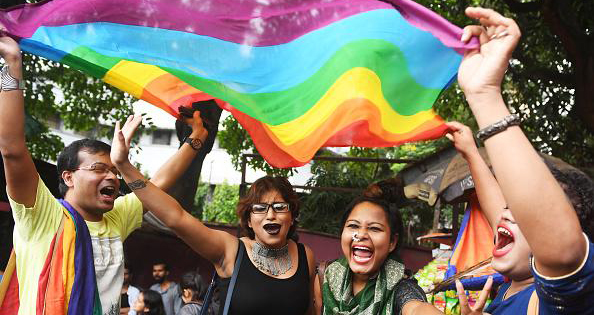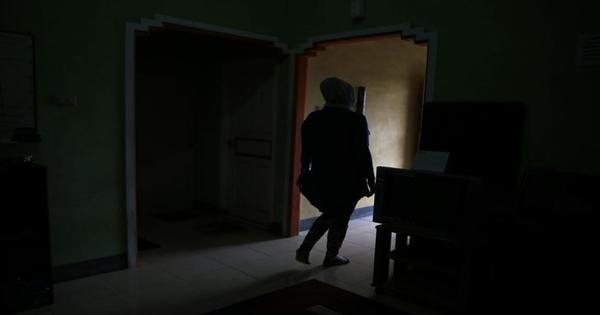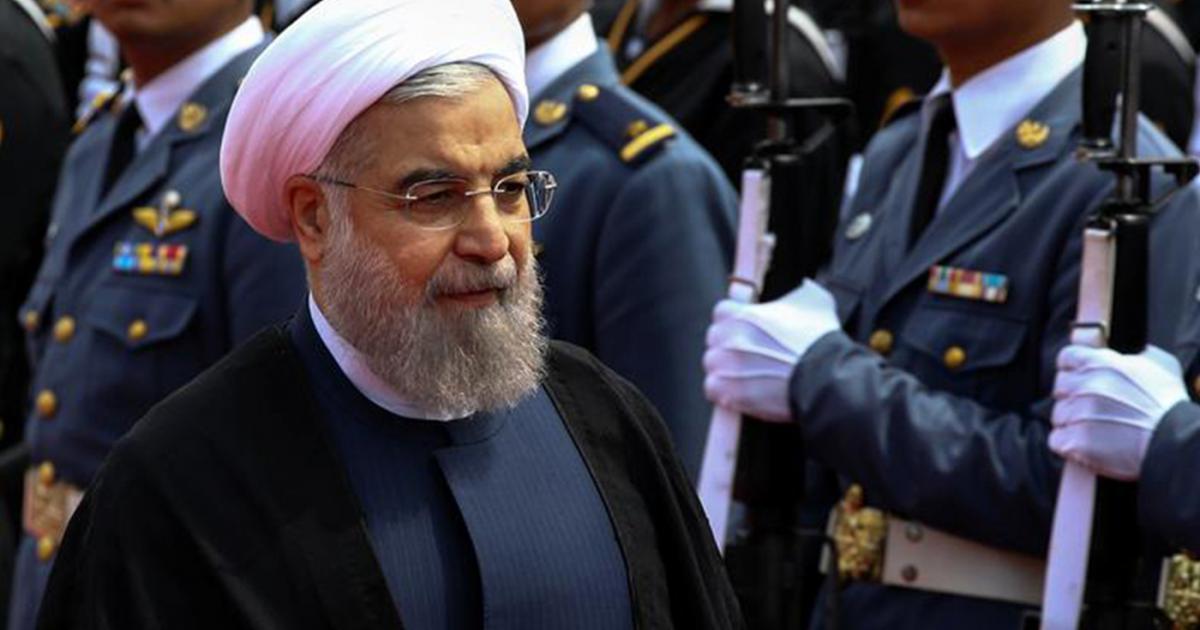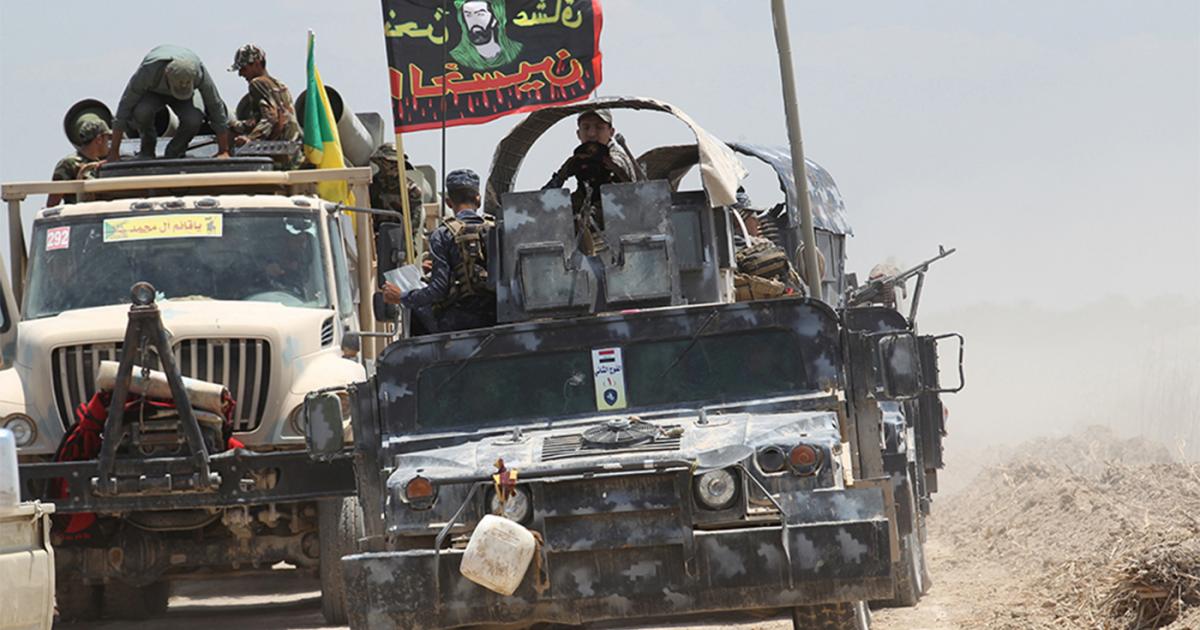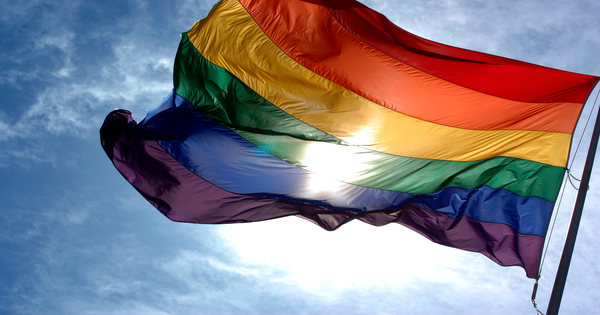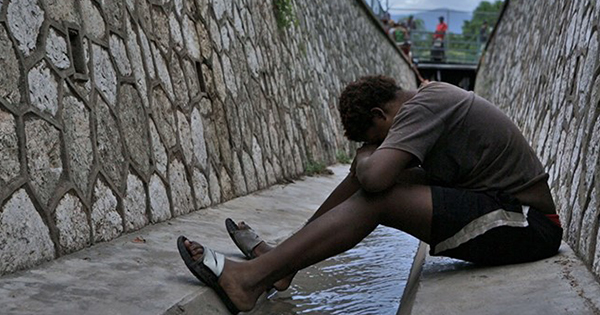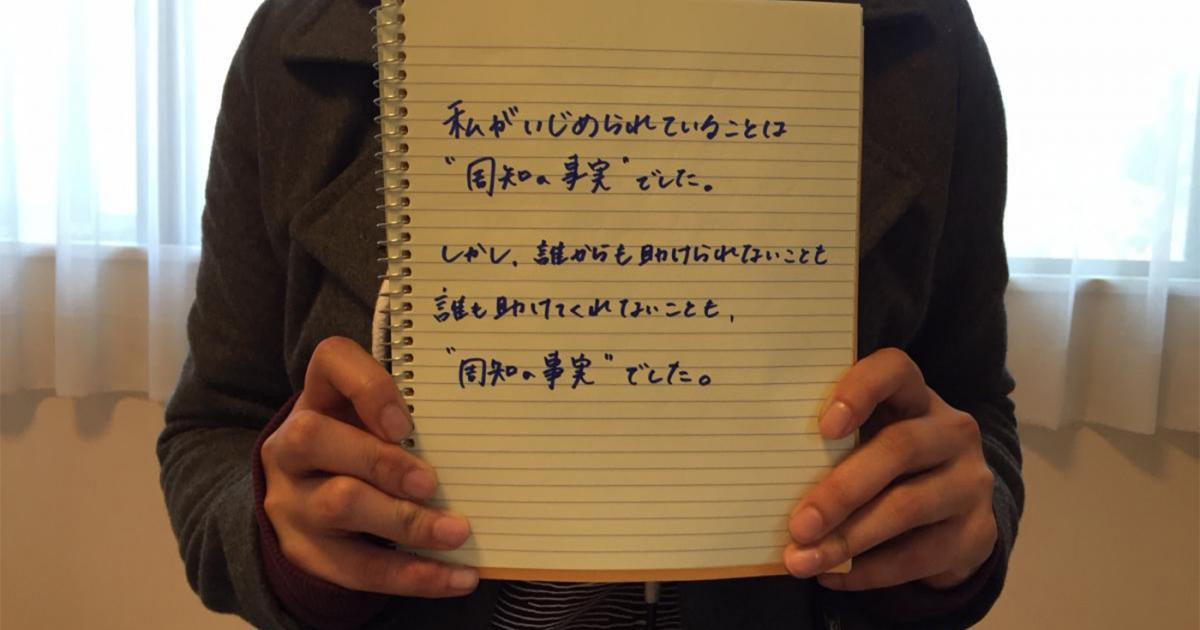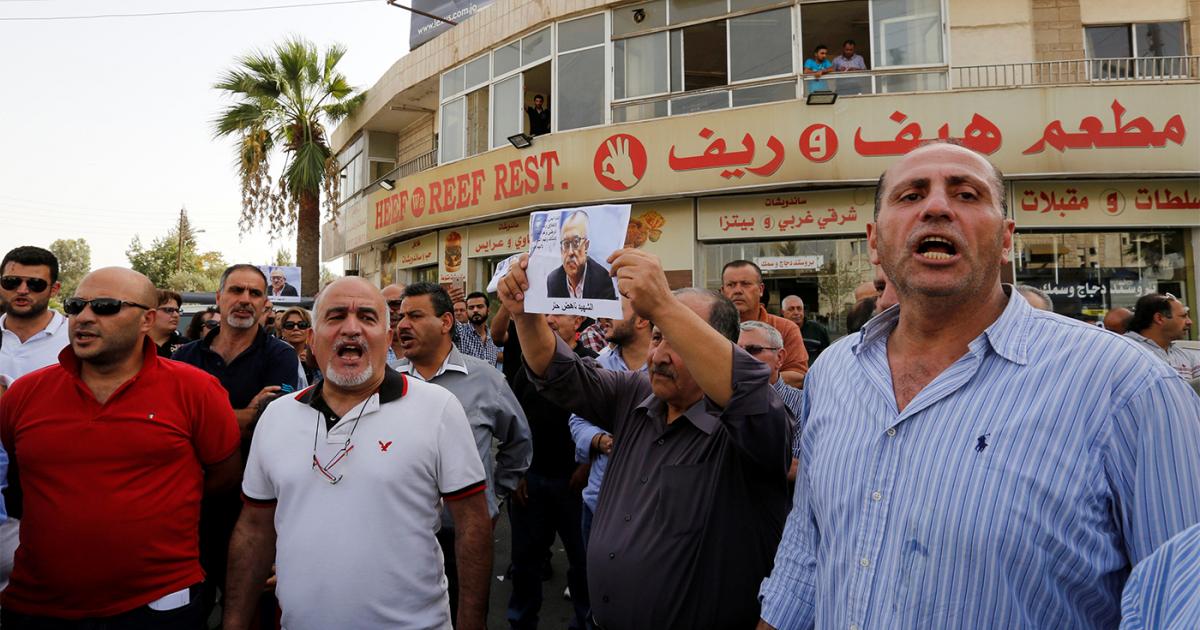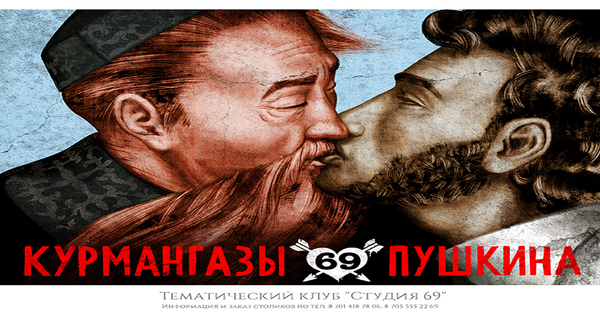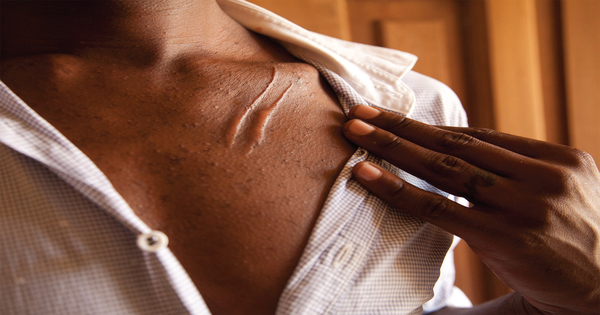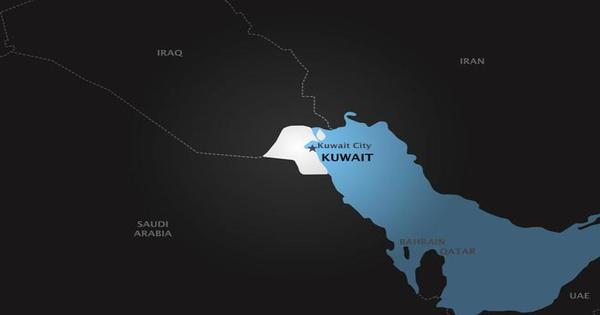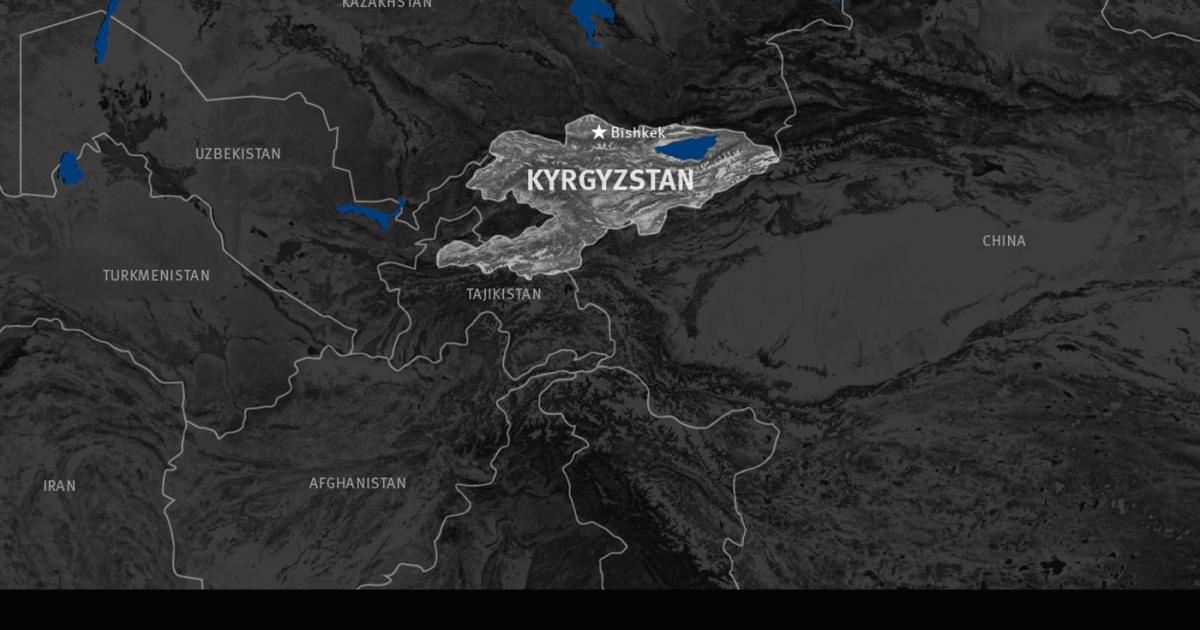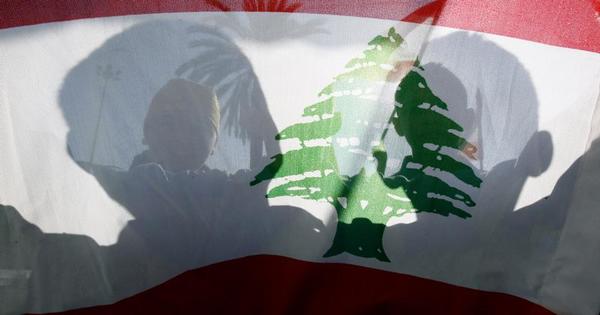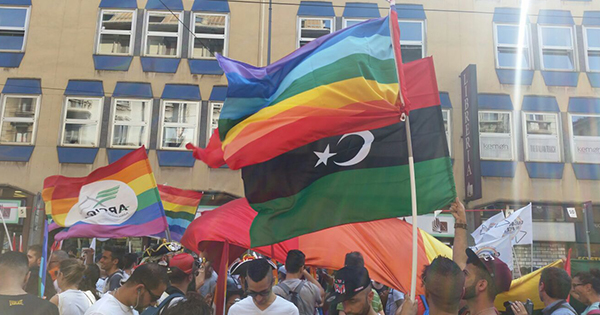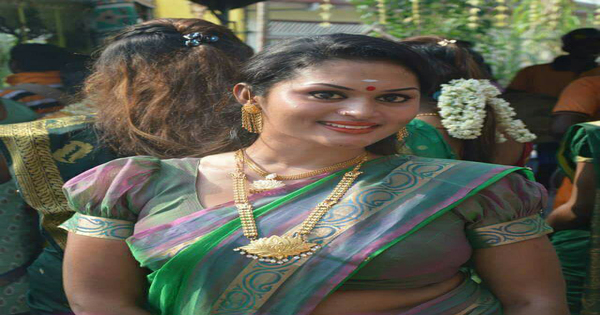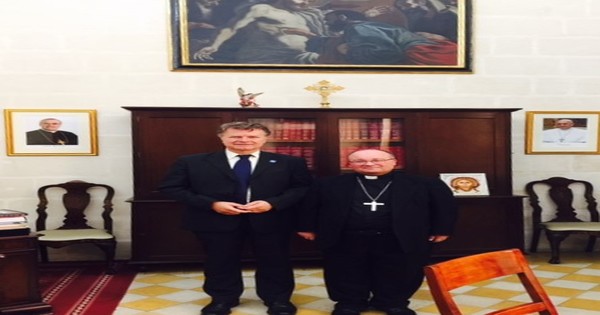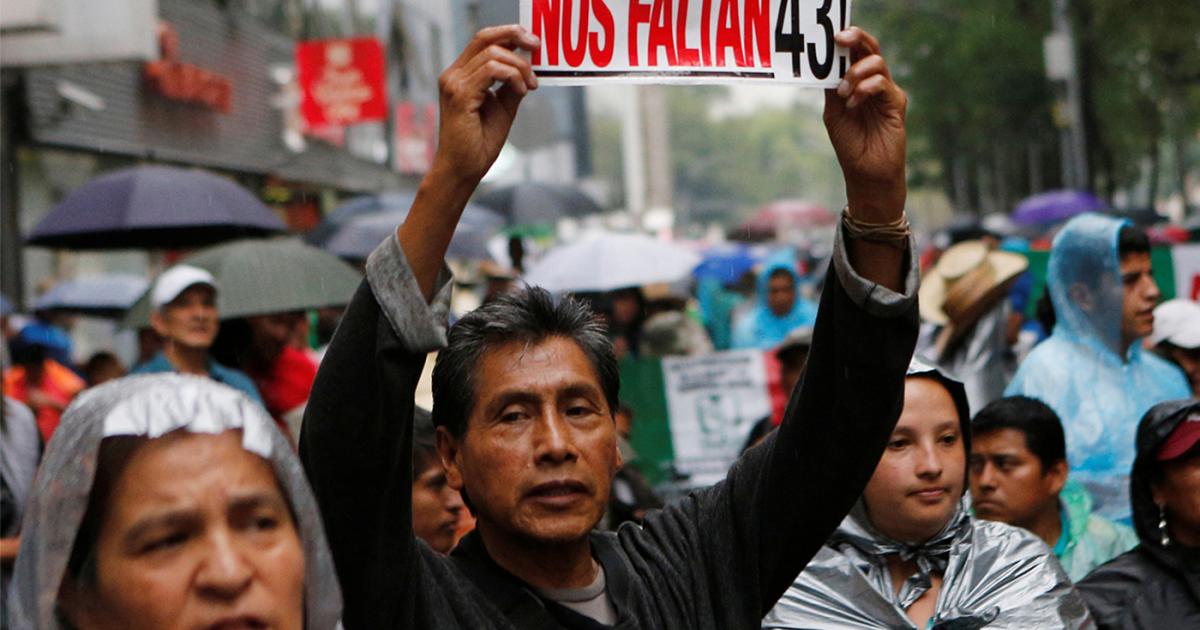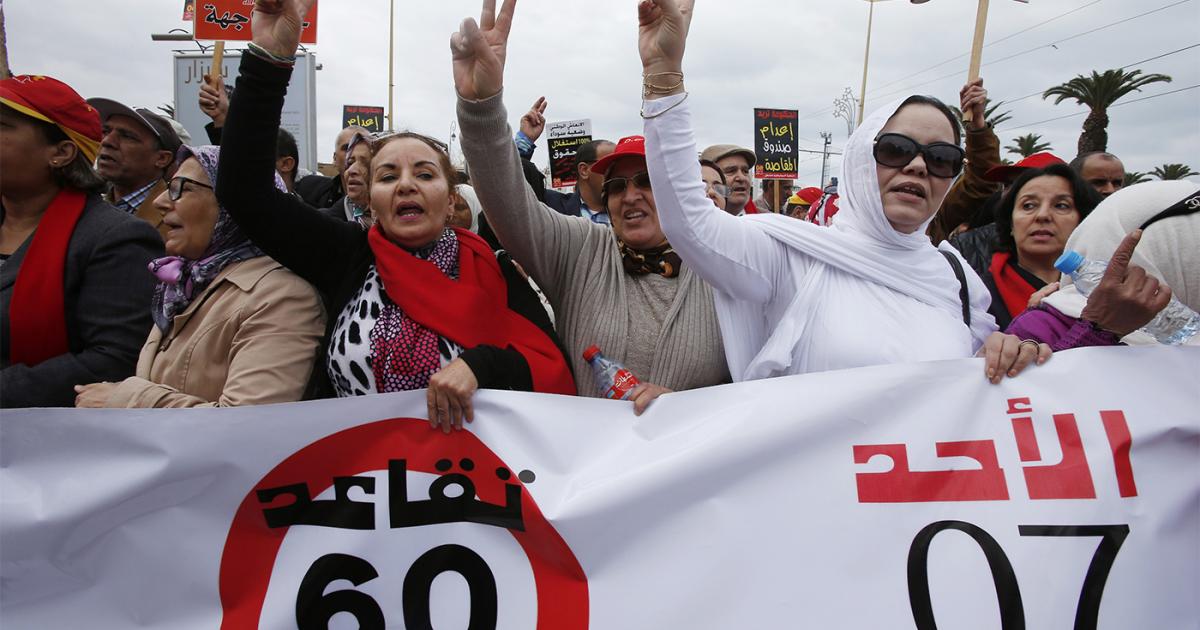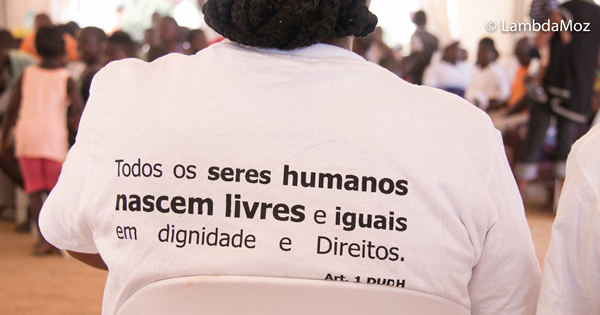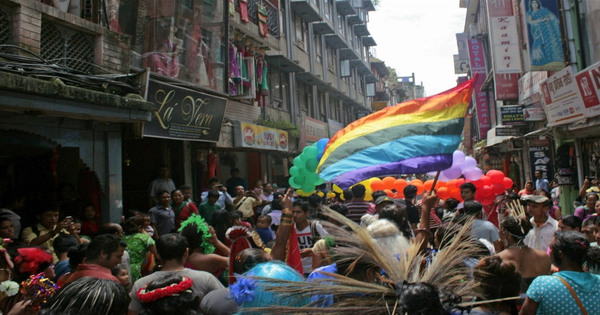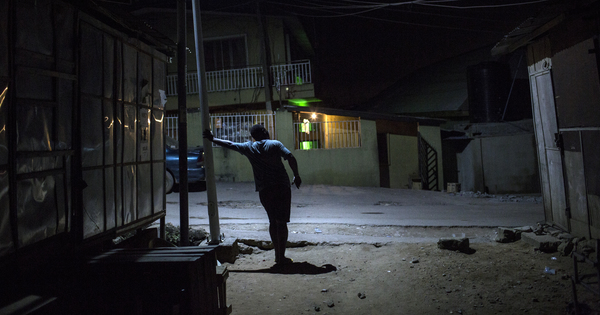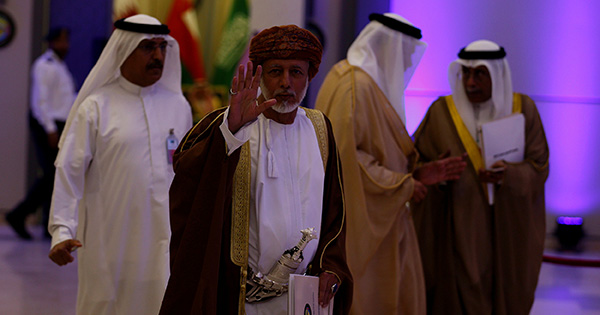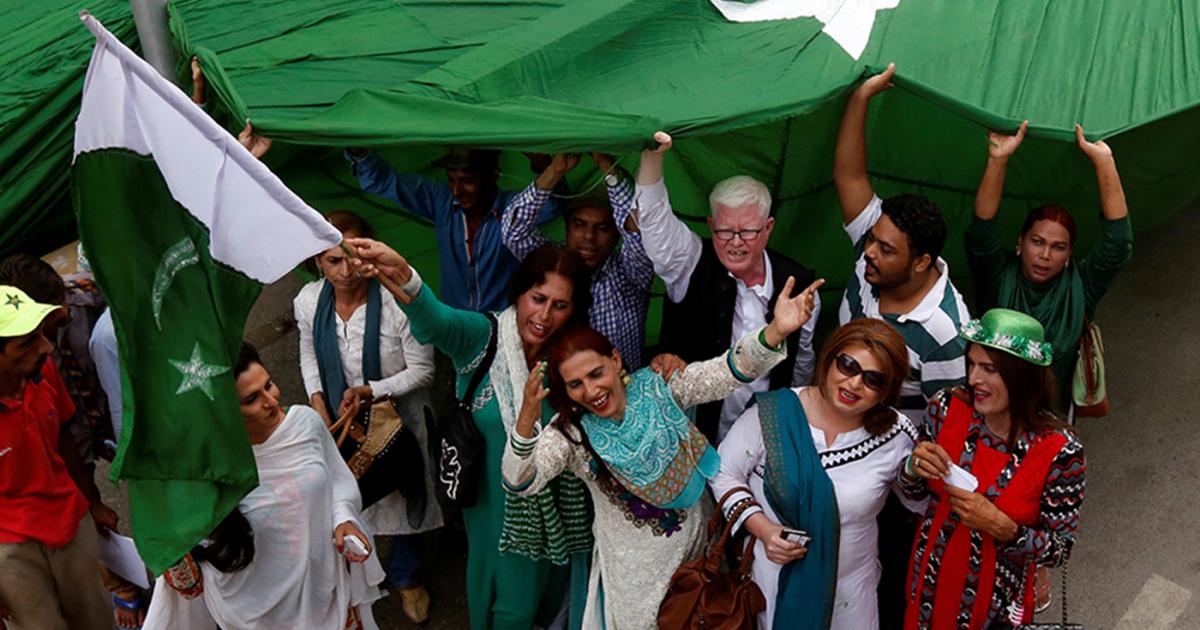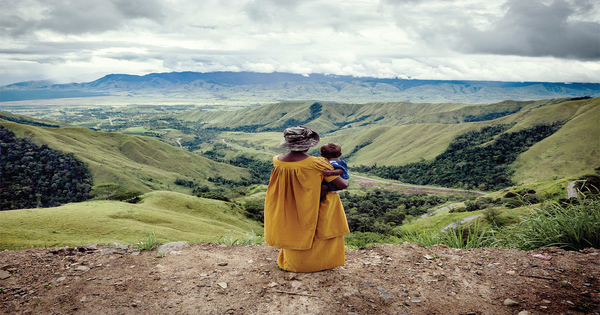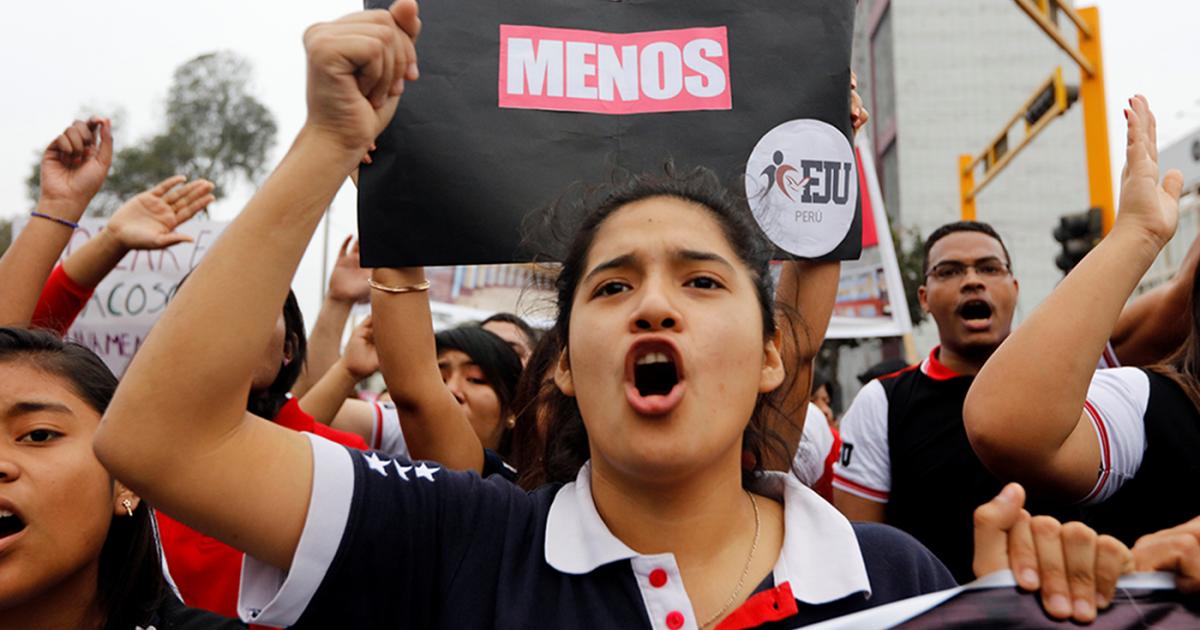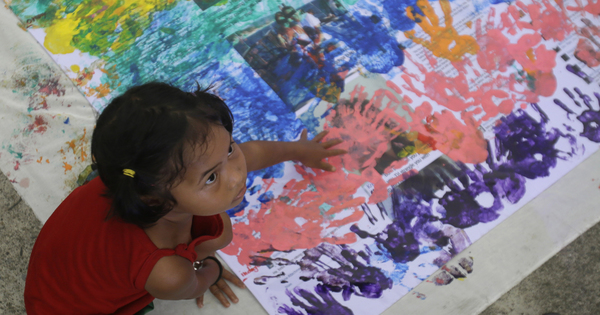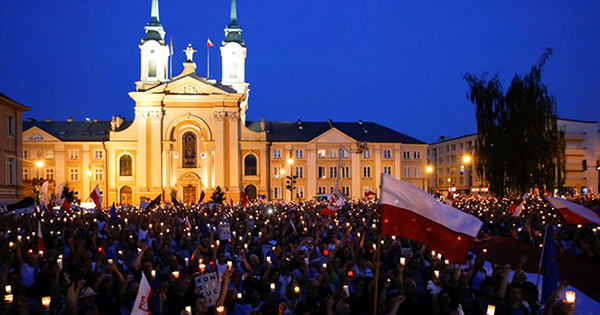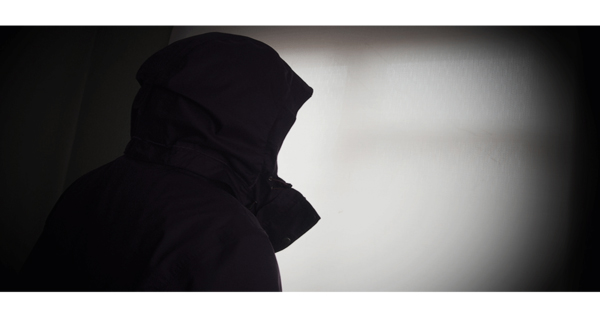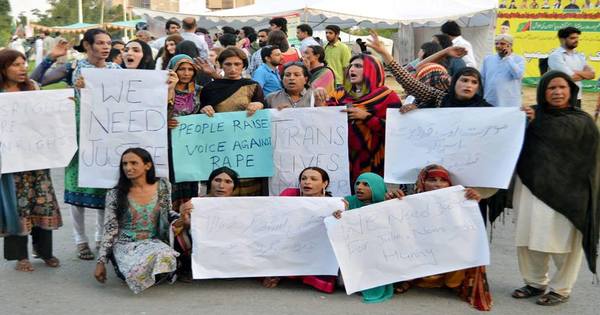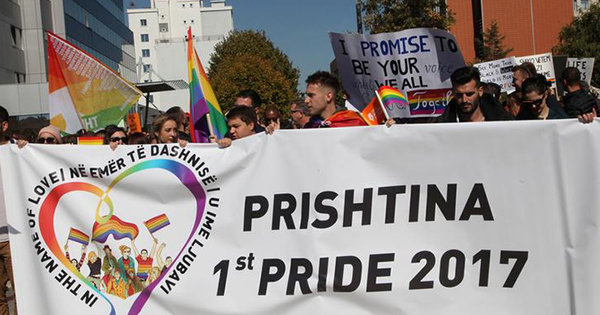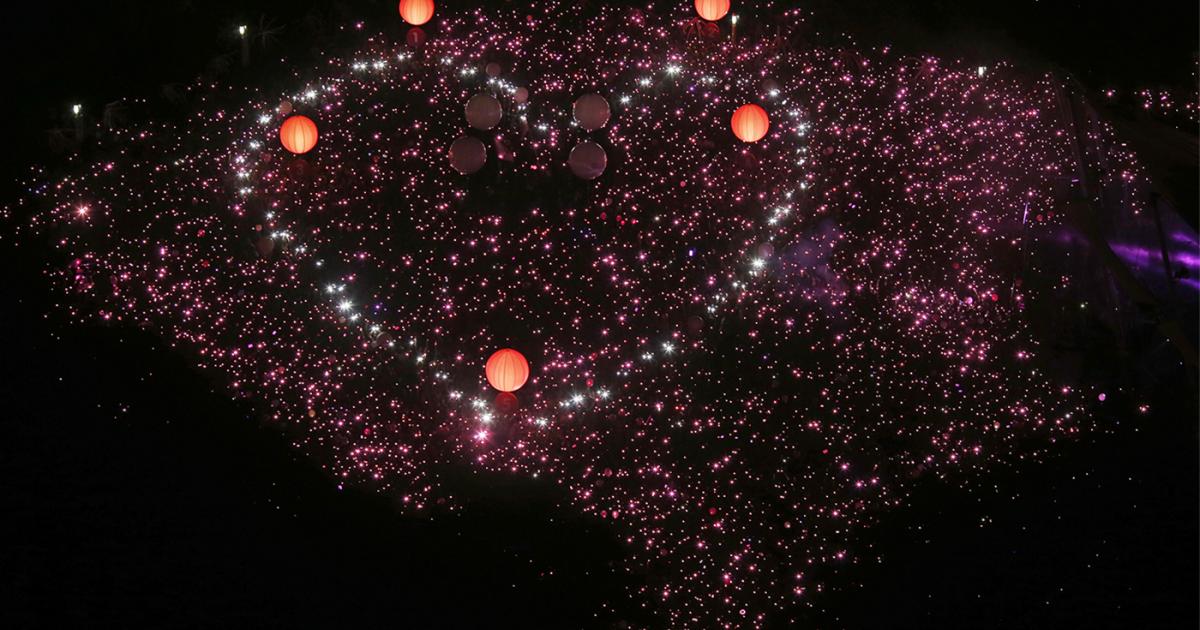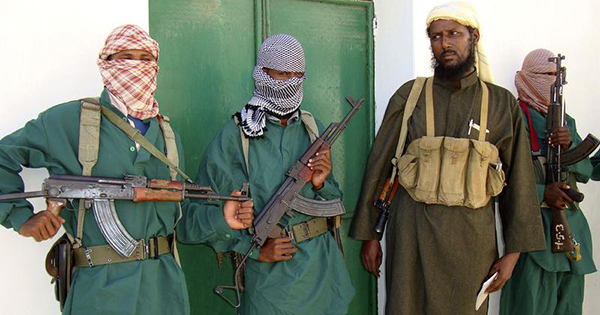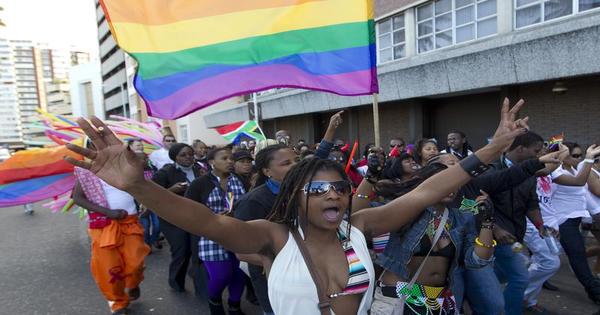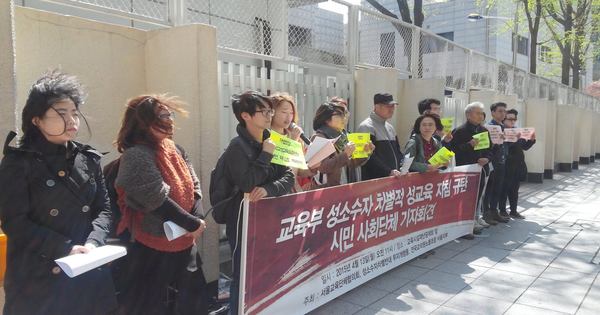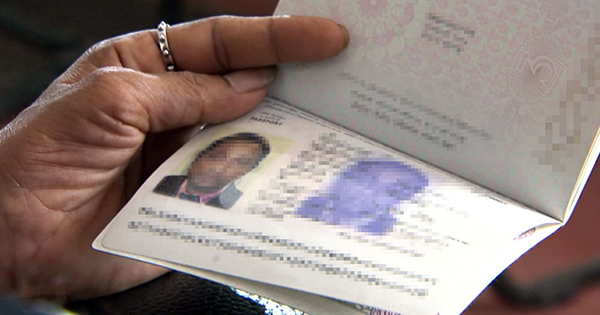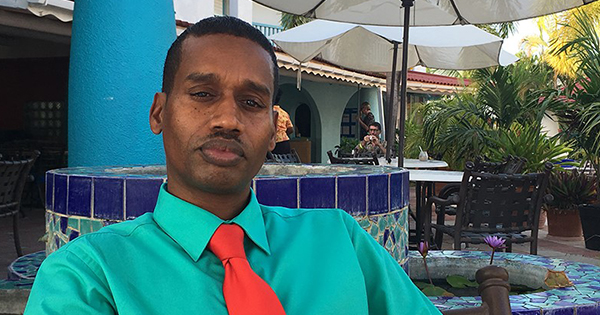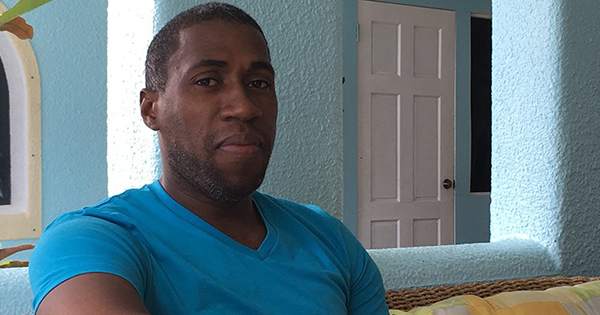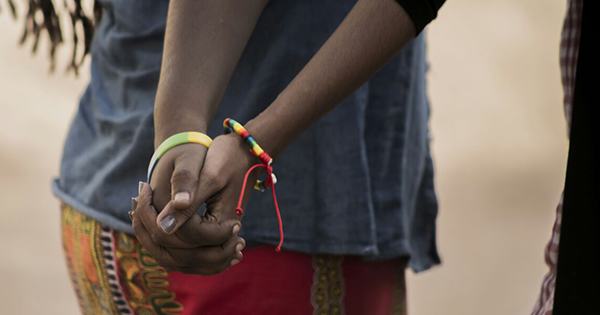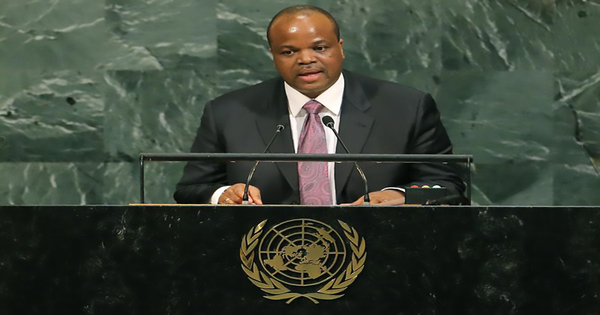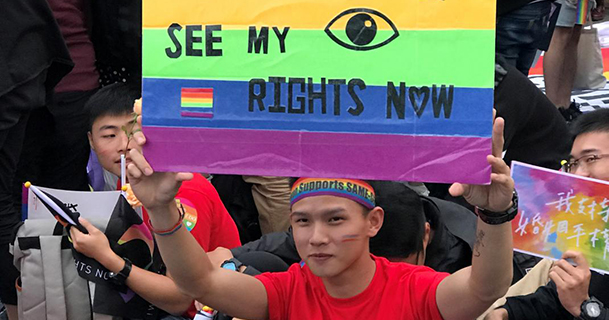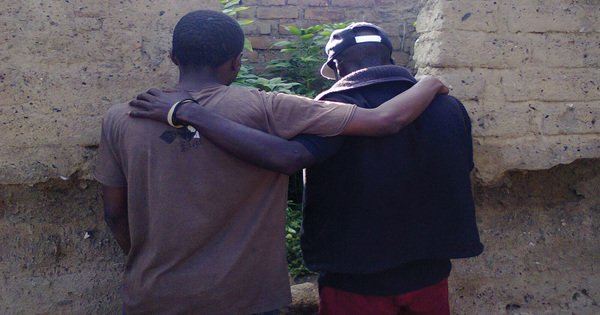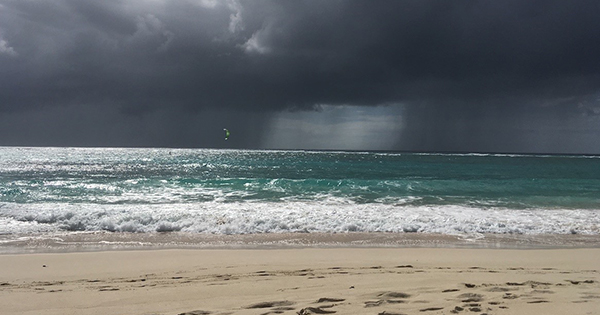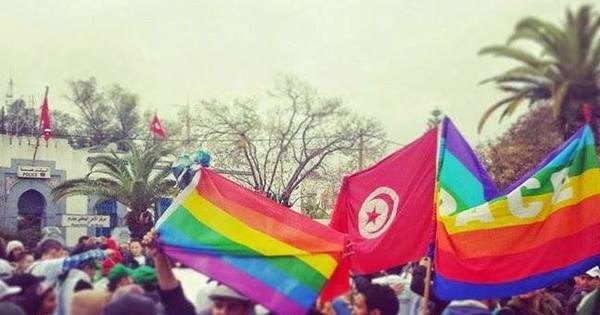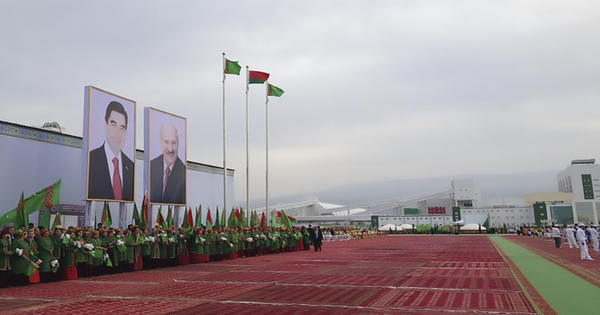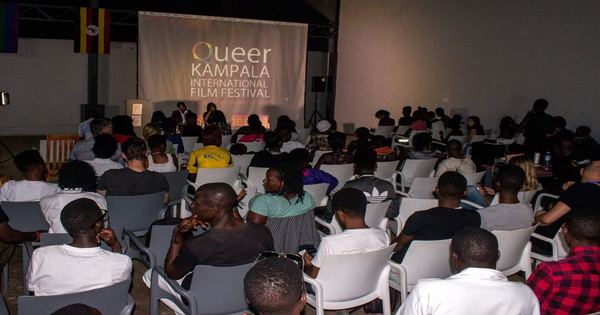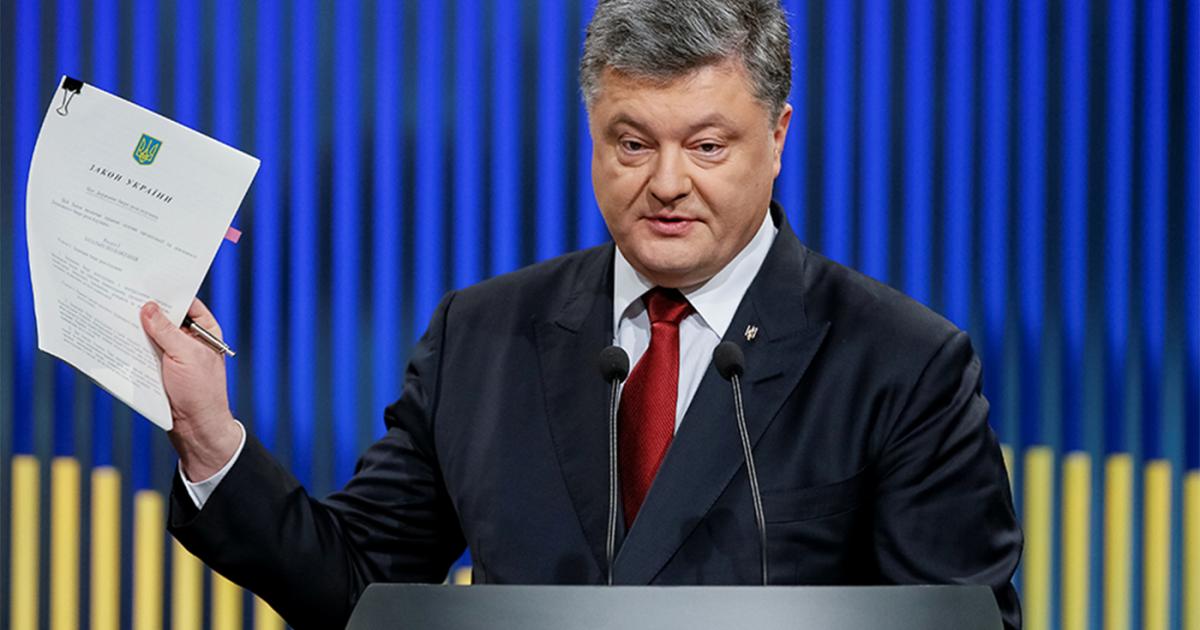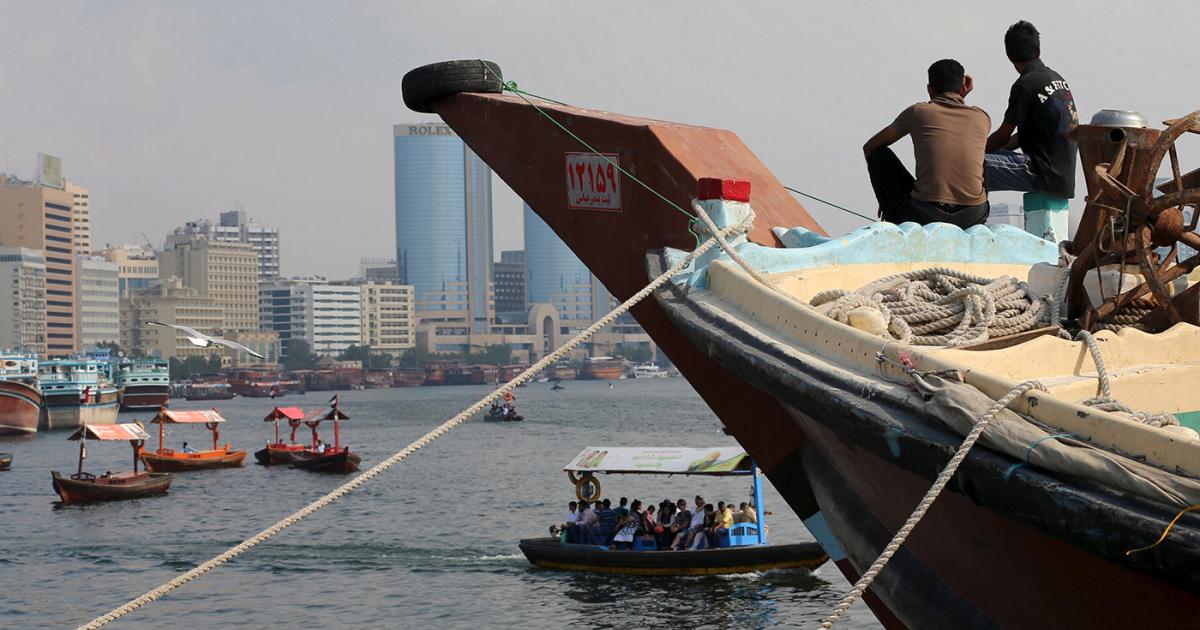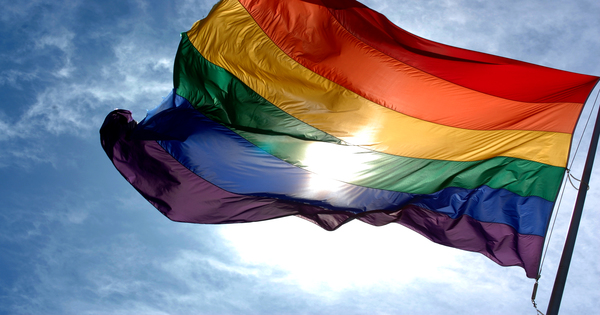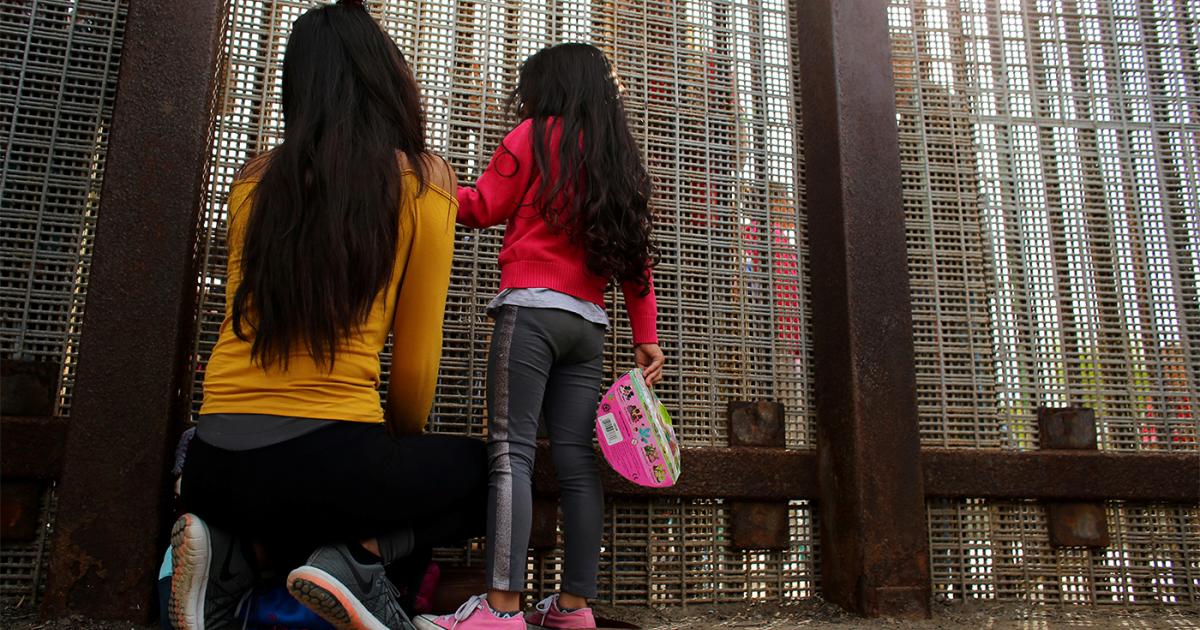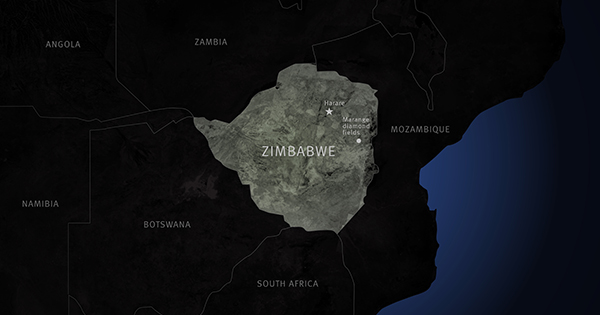Algeria's penal code criminalizes same-sex relations with a prison sentence of two months to two years. More »
×Algeria
Algeria's penal code criminalizes same-sex relations with a prison sentence of two months to two years. In 2015, several people were arrested for same-sex relations but none were prosecuted.
Activists state that during and after the 2014 presidential election, anti-LGBT rhetoric from politicians and media led to increased harassment and violence, leading many lesbian, gay, bisexual, and transgender community leaders to flee the country. Activists have documented recent cases of violence on the grounds of sexual orientation and gender identity within families, at universities, in the streets, and in prisons.
Antigua and Barbuda's 1995 Sexual Offences Act criminalizes the act of buggery between consenting adults More »
×Antigua and Barbuda
Antigua and Barbuda's 1995 Sexual Offences Act criminalizes the act of buggery between consenting adults with a sentence of 15 years in prison and criminalizes acts of "serious indecency" with a sentence of up to five years. Human Rights Watch has documented homophobic violence and threats faced by gay men and trans women in Antigua and Barbuda.
The Royal Police Force of Antigua and Barbuda has undergone LGBTI Sensitization Training to better protect the rights of LGBTI people, facilitated by Caribbean activists.
In 2010, Argentina became the first Latin American country to legalize same-sex marriage. More »
×Argentina
In 2010, Argentina became the first Latin American country to legalize same-sex marriage. The Civil Marriage Law allows same-sex couples to enter civil marriages and affords them the same legal marital protections as different-sex couples, including adoption rights and pension benefits. Since 2010, Argentine groups report, more than 16,200 same-sex couples have married nationwide.
Lesbian, gay, bisexual, and transgender (LGBT) people face harassment, discrimination, and violence. More »
×Armenia
Lesbian, gay, bisexual, and transgender (LGBT) people face harassment, discrimination, and violence. The LGBT rights organization PINK Armenia documented nine physical attacks based on sexual orientation or gender identity through August 2017. Officials opened investigations in several cases, but the law does not include anti-LGBT bias as an aggravating circumstance. Fear of discrimination and public disclosure of their sexual orientation prevents many LGBT people from reporting crimes.
PINK Armenia Director Mamikon Hovsepyan reported a campaign of homophobic Facebook posts in May 2017, including calls to attack the office and staff, following the Yerevan municipality's controversial removal of LGBT-themed advertisements on social media.
Days before the annual Golden Apricot International Film Festival in July 2017, the Union of Cinematographers of Armenia (UCA) denied the festival's use of the main venue. The festival was unable to screen 40 films including two LGBT-themed films. Although officially the UCA justified the refusal citing the death of the UCA president more than a month earlier, local activists believe that inclusion of films on LGBT issues prompted the denial.
In November 2017, the Turnbull government held a non-binding postal survey on same-sex marriage, putting the lives and identities of LGBT people up to public debate. More »
×Australia
In November 2017, the Turnbull government held a non-binding postal survey on same-sex marriage, putting the lives and identities of LGBT people up to public debate. Australians voted overwhelmingly in favor of marriage equality, and parliament passed a marriage equality law in December.
On December 4, 2017, the Austrian Constitutional Court ruled that the government and Parliament have until January 1, 2019, to introduce legislation allowing same-sex couples to marry. More »
×Austria
On December 4, 2017, the Austrian Constitutional Court ruled that the government and Parliament have until January 1, 2019, to introduce legislation allowing same-sex couples to marry. If the government does not act by then, the law on civil marriage law will be automatically be read as if amended and from then on, same-sex marriages can take place.
In September 2017, authorities detained dozens of people presumed to be gay or bisexual, as well as transgender women, on dubious disobedience charges. More »
×Azerbaijan
In September 2017, authorities detained dozens of people presumed to be gay or bisexual, as well as transgender women, on dubious disobedience charges. Police ill-treated many to coerce bribes and information about other gay, bisexual and transgender people. Following unfair trials, they were either sentenced for up to 30 days' detention or released after they paid a fine. Authorities failed to investigate the allegations of torture and ill-treatment made by many of them during the appeal hearings.
Same-sex conduct between adults over 21 years has not been criminalized since the repeal of the 1955 British-imposed Penal Code in 1976. More »
×Bahrain
Same-sex conduct between adults over 21 years has not been criminalized since the repeal of the 1955 British-imposed Penal Code in 1976. But alleged homosexual or gender non-conforming acts, such as organizing a "gay party" or cross-dressing, have been prosecuted under vague and undefined penal code provisions against "indecency" and "immorality."
No law prohibits discrimination on the grounds of gender, gender identity, or sexual orientation.
Although the government took some steps in recent years, such as declaring legal recognition of a third gender category for hijras, policy implementation remains weak and sexual and gender minorities remained under constant pressure and threat. More »
×Bangladesh
Although the government took some steps in recent years, such as declaring legal recognition of a third gender category for hijras, policy implementation remains weak and sexual and gender minorities remained under constant pressure and threat.
The government twice rejected recommendations during its Universal Periodic Review at the UN Human Rights Council to repeal the colonial-era law forbidding same-sex conduct. In May, the Rapid Action Battalion, a mixed force of police and soldiers under control of the military, raided a gathering in Dhaka, arresting 28 men and publicly accusing them of homosexuality and drug possession, flouting privacy rights.
Chapter 154 of the 1992 Sexual Offences Act punishes any person who commits "buggery" with life imprisonment, and any person who commits an "act of serious indecency" with 16 years in prison. More »
×Barbados
Chapter 154 of the 1992 Sexual Offences Act punishes any person who commits "buggery" with life imprisonment, and any person who commits an "act of serious indecency" with 16 years in prison. In 2016, Prime Minister Stuart of Barbados claimed that the Sexual Offences Act only applies in cases of non-consensual sex.
The Royal Barbados Police Force has embarked on sensitivity training regarding the LGBTI community.
In July 2017, a vaguely worded law on "protecting children from information harmful for their health and development" entered into force. More »
×Belarus
In July 2017, a vaguely worded law on "protecting children from information harmful for their health and development" entered into force. Activists expressed concern that the law may be used to restrict dissemination of neutral or positive information about lesbian, gay, bisexual, and transgender (LGBT) people as "discrediting the institution of the family."
In 2016 the Belize Supreme Court became the first Commonwealth Caribbean Court to hold that laws that criminalize same-sex intimacy were unconstitutional, affirming the rights of LGBT people in Belize to dignity, privacy, and equality before the law. More »
×Belize
In 2016 the Belize Supreme Court became the first Commonwealth Caribbean Court to hold that laws that criminalize same-sex intimacy were unconstitutional, affirming the rights of LGBT people in Belize to dignity, privacy, and equality before the law. The court struck down Section 53 of the criminal code, which outlawed "carnal intercourse against the order of nature," and reduced the scope of Section 53 by excluding sexual activity taking place in private between consenting adults.
In May 2016, the Plurinational Assembly passed a bill that allows people to revise the gender noted on their identification documents without prior judicial approval. More »
×Bolivia
In May 2016, the Plurinational Assembly passed a bill that allows people to revise the gender noted on their identification documents without prior judicial approval.
In December 2016 a transgender woman, Luna, obtained her new birth certificate reflecting her identity as a woman. She married her husband on December 30, 2016, becoming the first transgender woman in Bolivia to legally marry a person of the same sex assigned at birth. However, in November 2017, the Constitutional Court ruled that revision of gender did not grant the right to marry a person of the same sex assigned at birth.
Same-sex couples are not allowed to marry or enter into civil unions. Bolivia's 2009 constitution defines marriage as the union of a man and a woman.
Between January and September 2017, Sarajevo Open Centre, an LGBT rights organization, documented 39 cases of hate speech, mostly on social networks and online portals, seven cases of discrimination, and 23 cases of hate crimes towards LGBT people. More »
×Bosnia and Herzegovina
Between January and September 2017, Sarajevo Open Centre, an LGBT rights organization, documented 39 cases of hate speech, mostly on social networks and online portals, seven cases of discrimination, and 23 cases of hate crimes towards LGBT people. These cases included eight cases of illegal imprisonment and forced conversion therapies by family members, five cases of homophobic and transphobic violence in schools (of which three were committed against children), and 10 threats of violence, physical, verbal and psychological violence, or blackmail. The reaction of police and public authorities to these incidents was generally inadequate.
In October 2017, Botswana's High Court ruled that a transgender man should be allowed to hold official documents that reflect his gender identity, the culmination of a 7-year case for legal recognition supported by the Southern Africa Litigation Centre. More »
×Botswana
In October 2017, Botswana's High Court ruled that a transgender man should be allowed to hold official documents that reflect his gender identity, the culmination of a 7-year case for legal recognition supported by the Southern Africa Litigation Centre. On March 22, 2018, Botswanan courts will hear a case challenging a law outlawing consensual same-sex conduct.
The national Human Rights Ombudsman's Office received 725 complaints of violence, discrimination, and other abuses against lesbian, gay, bisexual, and transgender (LGBT) people in the first half of 2017. More »
×Brazil
The national Human Rights Ombudsman’s Office received 725 complaints of violence, discrimination, and other abuses against lesbian, gay, bisexual, and transgender (LGBT) people in the first half of 2017.
In February 2017, men shouting homophobic insults beat, shot, and stoned to death Dandara dos Santos, a 42-year-old transgender person in the state of Ceará. A witness said he called the police twice during the attack. Police have not explained their delayed response. Police detained several suspects only after a video of the beating (apparently recorded by one of the aggressors) appeared on social media.
In September 2017, a federal judge overruled a 1999 decision by the Federal Council of Psychology that banned conversion therapy (the attempt to change an individual’s sexual orientation). The council appealed.
Bulgaria's 2004 Protection against Discrimination Act prohibits all direct or indirect discrimination on many grounds, including sexual orientation. More »
×Bulgaria
Bulgaria's 2004 Protection against Discrimination Act prohibits all direct or indirect discrimination on many grounds, including sexual orientation. Bulgaria is also obligated as a party to the European Convention on Human Rights and a member of the European Union and the EU Charter of Fundamental Rights to prohibit discrimination. Despite these important steps, Sofia Pride marchers are consistently faced with hateful rhetoric and threats of violence. Police provided protection to Sofia Pride marchers in June, following threats from far-right extremists.
Prime Minister Trudeau's government has taken significant steps domestically to advance the rights of lesbian, gay, bisexual, and transgender (LGBT) people, including passing legislation to protect transgender people from discrimination, creating a non-binary gender option on passports, and welcoming LGBTI refugees, including those fleeing persecution in Chechnya. More »
×Canada
Prime Minister Trudeau's government has taken significant steps domestically to advance the rights of lesbian, gay, bisexual, and transgender (LGBT) people, including passing legislation to protect transgender people from discrimination, creating a non-binary gender option on passports, and welcoming LGBTI refugees, including those fleeing persecution in Chechnya.
In June 2017, Bill C-16 received royal assent amending the Canadian Human Rights Act to add gender identity and gender expression to the list of prohibited grounds of discrimination. The bill also amends the criminal code to extend protection against hate propaganda to any section of the public that is distinguished by gender identity or expression while deeming that any offence motivated by bias, prejudice, or hate based on gender identity and expression as an aggravating circumstance in sentencing.
In November, Prime Minister Trudeau apologized to members of the LGBT community for actions the government took through the late 1980s against thousands of workers in the military and the Canadian public service. The government also announced in May that it would pardon and expunge records for any Canadians who were charged with, and who still have on their records, criminal offences that are no longer on the books.
In June 2017, after four years of deliberation, the Senate passed a bill recognizing the right to gender identity and submitted it to the lower house, Chamber of Deputies, for consideration. The bill allows for unmarried individuals over 18 years old to legally change their name and gender marker on their government-issued identity documents and requires medical certification. More »
×Chile
In June 2017, after four years of deliberation, the Senate passed a bill recognizing the right to gender identity and submitted it to the lower house, Chamber of Deputies, for consideration. The bill allows for unmarried individuals over 18 years old to legally change their name and gender marker on their government-issued identity documents and requires medical certification. In January 2018, the Chamber of Deputies approved the bill, with modifications, and sent it back to the Senate.
In August 2017, President Bachelet introduced a bill to Congress that would legalize same-sex marriage and grant same-sex couples the right to access assisted reproduction techniques and adoption. The presentation of the bill corresponds to a commitment adopted by the Chilean State in the friendly settlement agreement signed on June 11, 2016, following a petition submitted to the Inter-American Commission on Human Rights (IACHR). The bill does not regulate, however, the situation of children of same-sex couples not united by marriage.
While China de-criminalized homosexuality in 1997, it lacks laws protecting people from discrimination on the basis of sexual orientation or gender identity. Same-sex partnerships are not legally recognized. More »
×China
While China de-criminalized homosexuality in 1997, it lacks laws protecting people from discrimination on the basis of sexual orientation or gender identity. Same-sex partnerships are not legally recognized.
In May 2017, Chinese authorities shut down a popular dating app for lesbians. In June, the government banned "abnormal sexual lifestyles," including homosexuality, from online video programs. In July, authorities forced the LGBT group Speak Out to cancel a conference in Chengdu. An earlier Speak Out event scheduled for May in Xi'an was also cancelled after police briefly detained the organizers and told them that LGBT events were "not welcome" in the city.
In July 2017, a Chinese court ruled that a public hospital that had forced a gay man into so-called conversion therapy was obligated to issue a public apology and pay the man, known as Yu, 5,000 RMB (US$375) in compensation. However, the ruling stopped short of addressing that forced conversion therapy is a form of discrimination based on sexual orientation.
Human Rights Watch has documented continued instances of conversion therapy in China, including electroshock therapy. Homosexuality has not been considered a mental disorder in China for more than a decade, but Chinese authorities have not taken proactive measures to stop healthcare facilities or practitioners from offering conversion therapy.
In recent years, authorities in Colombia have taken several steps to recognize the rights of lesbian, gay, bisexual, and transgender people. More »
×Colombia
In recent years, authorities in Colombia have taken several steps to recognize the rights of lesbian, gay, bisexual, and transgender people. In June 2015, the Justice Ministry issued a decree allowing people to revise the gender noted on their identification documents without prior judicial approval. In November 2015, the Constitutional Court ruled that no one can be barred from adopting a child because of their sexual orientation. In April 2016, the court upheld the right of same-sex couples to marry. In May 2017, lawmakers rejected a legislative proposal to hold a referendum that would have put progress in jeopardy by asking voters to decide whether same-sex couples and single people should be allowed to adopt children.
On January 9, 2018, the Inter American Court of Human Rights affirmed, in a landmark advisory opinion at the request of Costa Rica, that the American Convention on Human Rights requires countries to allow same-sex couples access to civil marriage, and all of the rights and benefits that derive from it. More »
×Costa Rica
On January 9, 2018, the Inter American Court of Human Rights affirmed, in a landmark advisory opinion at the request of Costa Rica, that the American Convention on Human Rights requires countries to allow same-sex couples access to civil marriage, and all of the rights and benefits that derive from it. This ruling creates an opening in the states who have ratified the Convention to follow the marriage equality example of Argentina, Brazil, Colombia, Mexico and Uruguay. The advisory opinion also asserted that governments should allow people, through a fast, easy and cost-free process, to change their name and gender marker on official documents, in accordance with their self-perceived gender identity.
Côte d'Ivoire does not criminalize same-sex conduct, although the criminal code establishes higher minimum sentences for public indecency for same-sex couples. More »
×Côte d'Ivoire
Côte d'Ivoire does not criminalize same-sex conduct, although the criminal code establishes higher minimum sentences for public indecency for same-sex couples. An antidiscrimination provision in Côte d'Ivoire's new constitution, promulgated in January 2017, does not include protection against discrimination on grounds of sexual orientation. Incidents of discrimination against lesbian, gay, bisexual, and transgender persons, including physical assaults, are common.
The 1998 Sexual Offences Act punishes same- sex conduct between two consenting adults with 10 years in prison. More »
×Dominica
The 1998 Sexual Offences Act punishes same- sex conduct between two consenting adults with 10 years in prison. The law specifies that if a person is convicted of "buggery," "the Court may order that the convicted person be admitted to a psychiatric hospital for treatment."
Same-sex couples are not allowed to marry in Ecuador. More »
×Ecuador
Same-sex couples are not allowed to marry in Ecuador. Since 2008, civil unions are recognized but do not accord the full range of rights enjoyed by married couples, including the ability to adopt children.
Between September 2017 and January 2018, security forces arrested over 100 people suspected of being gay or transgender after a few activists raised rainbow flags, a sign of LGBT activism, at a concert in Cairo. More »
×Egypt
Between September 2017 and January 2018, security forces arrested over 100 people suspected of being gay or transgender after a few activists raised rainbow flags, a sign of LGBT activism, at a concert in Cairo. Supreme State Security Prosecution charged two with "joining an illegal group" aiming at overthrowing the constitution. Courts sentenced over 40 of the arrested to prison terms of up to 6 years under vague "debauchery" laws. The Supreme Council for Media Regulation, a government body, issued a statement prohibiting "the appearance of homosexuals or their slogans in the media."
In May 2017, Council of Europe Secretary General Thorbjørn Jagland warned that attacks against lesbian, gay, bisexual, and transgender (LGBT) people are widespread in Europe and highlighted the need for strong and effective anti-discrimination laws. More »
×European Union
In May 2017, Council of Europe Secretary General Thorbjørn Jagland warned that attacks against lesbian, gay, bisexual, and transgender (LGBT) people are widespread in Europe and highlighted the need for strong and effective anti-discrimination laws. In April, the ECtHR ruled that requiring transgender people to undergo sterilization in order to have their gender recognized violates human rights.
President Barrow's government has promised not to prosecute same-sex couples for consensual sexual acts, which sharply contrasted with Jammeh's hate-filled rhetoric toward lesbian, gay, bisexual, and transgender (LGBT) persons. More »
×Gambia
President Barrow's government has promised not to prosecute same-sex couples for consensual sexual acts, which sharply contrasted with Jammeh's hate-filled rhetoric toward lesbian, gay, bisexual, and transgender (LGBT) persons. However, the government has not repealed laws that criminalize same-sex conduct, including an October 2014 law that imposes sentences of up to life in prison for "aggravated homosexuality" offenses.
A new constitution promulgated in October 2017 defined marriage "as a union of a woman and a man," entrenching the definition that had existed for years in the civil code. Rights groups feared that using the constitution to reinforce a barrier to same-sex marriage could feed widespread homophobia. The Venice Commission, an advisory body of the Council of Europe, said the clause should not be interpreted "as prohibiting same-sex partnership" and urged Georgia to provide legal recognition of civil unions for same-sex couples. More »
×Georgia
A new constitution promulgated in October 2017 defined marriage "as a union of a woman and a man," entrenching the definition that had existed for years in the civil code. Rights groups feared that using the constitution to reinforce a barrier to same-sex marriage could feed widespread homophobia. The Venice Commission, an advisory body of the Council of Europe, said the clause should not be interpreted "as prohibiting same-sex partnership" and urged Georgia to provide legal recognition of civil unions for same-sex couples.
In May 2017, a small group of gay rights activists and supporters gathered in front of the main government building in Tbilisi to mark International Day Against Homophobia and Transphobia, amid heavy security presence. Police erected fences to block counter demonstrators, assembled activists at two locations beforehand, and escorted them to and from the area on municipal buses.
In August, unidentified persons in Batumi assaulted three transgender women and two activists with the LGBT rights group Equality Movement, shouting homophobic slurs and inflicting bruises on activists Levan Berianidze and Tornike Kusiani. According to Berianidze, police standing nearby did nothing to stop the assailants. Instead, he said police pushed him and Kusiani to the ground, kicked them, and took them to a police station, where they subjected them to verbal abuse. The next day, a court fined them for disorderly conduct and disobeying police. Rights groups and the Office of the Public Defender demanded timely investigation into alleged police ill-treatment and the homophobic nature of the assault. Authorities launched an internal probe, which was pending at time of writing.
In July 2017, the Constitutional Court declared unconstitutional the ban on gay and bisexual men donating blood.
On Friday June 30, 2017, the German Bundestag voted in favor of marriage equality with 393 yes votes, 226 no votes, and four abstentions. More »
×Germany
On Friday June 30, 2017, the German Bundestag voted in favor of marriage equality with 393 yes votes, 226 no votes, and four abstentions. Chancellor Angela Merkel voted against the proposal.
Ghana has taken substantial positive steps in its treatment of LGBT people. More »
×Ghana
Ghana has taken substantial positive steps in its treatment of LGBT people. At least two government agencies, the Ghana Police Force and the Commission on Human Rights and Administrative Justice, have reached out to LGBT people and taken proactive steps to ensure their protection in state operations. On the other hand, Human Rights Watch has documented the impact of Ghana's 1960 Criminal Offences Act, Section 104(1)(b), which criminalizes consensual same-sex conduct between adults and contributes to a climate of fear and violence for LGBT Ghanaians. Lesbians, bisexual women and transgender men in Ghana are frequently victims of domestic violence and coerced marriage, and homophobic comments by Ghanaian officials in some cases incite violence towards people on the basis of real or imputed sexual orientation or gender identity.
In October, Greece's parliament passed legislation to amend the country's law on legal gender recognition, eliminating the requirement for applicants to undergo medical tests in order to change their gender marker on official documents, but maintaining some discriminatory elements. More »
×Greece
In October, Greece's parliament passed legislation to amend the country's law on legal gender recognition, eliminating the requirement for applicants to undergo medical tests in order to change their gender marker on official documents, but maintaining some discriminatory elements: applicants must be 17 or older, and be unmarried in order to be recognized, and a judge may reject an applicant on the grounds that their external appearance does not "match" their gender identity.
The Ministry of Education launched a thematic week, to be held every second semester of the school year, that seeks to inform students and their parents about, among others, issues such as sex, sexual orientation, gender identity, homophobia and transphobia.
Article 430 of Grenada's Criminal Code of 1987 defines "any grossly indecent act" as a misdemeanor. More »
×Grenada
Article 430 of Grenada's Criminal Code of 1987 defines "any grossly indecent act" as a misdemeanor. Article 431 punishes "unnatural connexion" with a sentence of 10 years, a provision that has been interpreted in at least three cases to include consensual anal intercourse between same-sex persons.
In 2016, Grenadians voted against a referendum instituting protections from discrimination based on gender, in part due to fears that the referendum would open a legal path to same-sex marriage.
In April 2017, lawmakers presented a legislative proposal, supported by over 30,000 signatures, to explicitly prohibit same-sex marriage. More »
×Guatemala
In April 2017, lawmakers presented a legislative proposal, supported by over 30,000 signatures, to explicitly prohibit same-sex marriage. The bill also aimed to restrain public schools from teaching students about sexual diversity and "gender ideology."
Lesbian, gay, bisexual, and transgender (LGBT) persons continue to suffer high levels of discrimination. More »
×Haiti
Lesbian, gay, bisexual, and transgender (LGBT) persons continue to suffer high levels of discrimination. In June 2017, the Haitian Senate passed a bill regulating conditions for the issuance of the Certificat de Bonne Vie et Mœurs, a document that many employers and universities require. The bill lists homosexuality, alongside child pornography, incest, and commercial sexual exploitation of children, as a reason to deny a citizen a certificate.
In August 2017, the Haitian Senate passed another bill calling for a ban on gay marriage, as well as any public support or advocacy for LGBT rights. The bill states that "the parties, co-parties and accomplices" of a homosexual marriage can be punished by three years in prison and a fine of about US$8,000.
Both bills were awaiting a vote in the Chamber of Deputies as of February 2018.
Homophobic and transphobic violence is a major problem in Honduras. More »
×Honduras
Homophobic and transphobic violence is a major problem in Honduras. Several UN agencies working in Honduras have noted that violence against LGBT individuals forces them into "internal displacement" or to flee the country in search of international protection.
In July 2017, David Valle, project coordinator of the Center for LGBTI Cooperation and Development, was stabbed by a stranger in his home in Tegucigalpa. Valle had received repeated threats in the past. He survived the attack.
In August 2017, the Supreme Court, in its ruling that privacy is a fundamental right, gave hope to lesbian, gay, bisexual, and transgender (LGBT) people in India by stating that section 377 of India's penal code, which effectively criminalizes same-sex relationships between consenting adults, had a chilling effect on "the unhindered fulfilment of one's sexual orientation, as an element of privacy and dignity." More »
×India
In August 2017, the Supreme Court, in its ruling that privacy is a fundamental right, gave hope to lesbian, gay, bisexual, and transgender (LGBT) people in India by stating that section 377 of India's penal code, which effectively criminalizes same-sex relationships between consenting adults, had a chilling effect on "the unhindered fulfilment of one's sexual orientation, as an element of privacy and dignity."
In January 2018, the Indian Supreme Court referred a writ petition against Section 377 to a five-judge Constitution Bench to revisit the 2013 verdict that reinstate Section 377.
In July 2017, a parliamentary committee submitted a report examining the draft Transgender Persons (Protection of Rights) Bill, introduced in parliament in August 2016. The report recommended that the bill adopt a 2014 Supreme Court ruling, guaranteeing transgender people the right to self-determine their gender identity. The committee also recommended the bill recognize transgender people's right to marriage, partnership, divorce, and adoption. The report raised concerns that the Transgender Persons Bill adopted regressive definitions of transgender people and did not include concrete definitions of discrimination or mechanisms for transgender people to bring complaints. After initially rejecting all the committee's recommendations, the government responding to protest from activists, changing course and accepting several of the recommendations.
On April 30, 2017, police raided a private gathering in Surabaya, arrested 14 men, subjected them to HIV tests without their consent, and detained them on charges of holding a sex party under Indonesia's vague and discriminatory anti-pornography law. More »
×Indonesia
On April 30, 2017, police raided a private gathering in Surabaya, arrested 14 men, subjected them to HIV tests without their consent, and detained them on charges of holding a sex party under Indonesia's vague and discriminatory anti-pornography law.
On May 21, police raided the Atlantis club in Jakarta, arrested 141 men, and charged 10 for holding an alleged gay sex party. Officers allegedly paraded the suspects unclothed in front of media and interrogated them still unclothed, a claim the police deny.
On May 23, Aceh, Indonesia's only province that implements Sharia, flogged two gay men each 83 times. The two, ages 20 and 23, were found in bed together by vigilantes who entered their private accommodation in March. This was the first caning on homosexuality charges in Indonesia.
On June 8, government officials in Medan apprehended five "suspected lesbians" and ordered their parents to supervise themñthen shared a video of the raid and the names of the five women with reporters.
On September 2, police and local government officials unlawfully raided the homes of 12 women in Bogor, West Java, alleging they were "suspected lesbians." Police recorded the women's personal details and ordered them to relocate from the area within three days.
Under Iranian law, same-sex conduct is punishable by flogging and, for men, the death penalty. More »
×Iran
Under Iranian law, same-sex conduct is punishable by flogging and, for men, the death penalty. Although Iran permits and subsidizes sex reassignment surgery for transgender people, no law prohibits discrimination against them. On September 14, 2017, Nasser Atabati, prosecutor of Ardebil province, told media that six people had been arrested in Ardebil for "promoting homosexuality" on the Telegram messaging platform.
In March 2017, before the Committee on the Rights of the Child, Iran denied allegations that coercive treatment and electric shocks were being used against lesbian, gay, bisexual, and transgender (LGBT) people.
Iraq's criminal code does not prohibit same-sex intimacy. However, since early 2009, Human Rights Watch has documented kidnappings, executions, and torture by militia groups in Iraq against men who are gay or perceived to be gay. More »
×Iraq
Iraq's criminal code does not prohibit same-sex intimacy. However, since early 2009, Human Rights Watch has documented kidnappings, executions, and torture by militia groups in Iraq against men who are gay or perceived to be gay.
In Gaza, "unnatural intercourse" of a sexual nature, understood to include same-sex relationships, is a crime punishable by up to 10 years in prison under the British Mandate Criminal Code Ordinance No. 74. More »
×Israel/Palestine
In Gaza, "unnatural intercourse" of a sexual nature, understood to include same-sex relationships, is a crime punishable by up to 10 years in prison under the British Mandate Criminal Code Ordinance No. 74. The West Bank applies the Jordanian Penal Code of 1960, where consensual same-sex acts are not penalized under law.
In June 2017, the Israeli government opposed a petition submitted by the Association of Israeli Gay Fathers requesting that common law and same-sex couples be allowed to adopt, arguing that adoption by same sex couples would place an "additional burden" on the child. But in August, the government reversed course, ending its opposition to adoption by same-sex couples.
Sections 76, 77, and 79 of Jamaica's Offences Against the Person Act (1864) criminalize both consensual and non-consensual sex between men, and punish same-sex conduct with a sentence of up to 10 years in prison or hard labor. More »
×Jamaica
Sections 76, 77, and 79 of Jamaica's Offences Against the Person Act (1864) criminalize both consensual and non-consensual sex between men, and punish same-sex conduct with a sentence of up to 10 years in prison or hard labor. Human Rights Watch reports show that the "buggery laws" contribute to a hostile climate in which discrimination and violence are rife.
In the past, politicians have put forth the absence of a gender-neutral rape law as justification for retaining the buggery law. Jamaica's Sexual Offences Act (2009) currently defines rape as the penetration of the vagina with the penis without consent, a narrow definition that fails to protect male victims of rape and female victims of non-vaginal rape. A gender- neutral law on rape or sexual assault may be a first step toward decriminalization of consensual same sex conduct, and the Sexual Offences Act is past due for review. At the time of writing, the Jamaican Governor-General had committed to a revision of the Sexual Offences Act in the 2018/2019 fiscal year.
In December 2016, the National Personnel Authority, which handles rules and policies involving national government officials, revised its interpretation of rules on prohibiting sexual harassment to include harassment based on sexual orientation or gender identity. More »
×Japan
In December 2016, the National Personnel Authority, which handles rules and policies involving national government officials, revised its interpretation of rules on prohibiting sexual harassment to include harassment based on sexual orientation or gender identity.
In revising the government's policy on bullying prevention, the Ministry of Education, Culture, Sports, Science and Technology (MEXT) specified for the first time that sexual and gender minority students should be protected from bullying and required schools to promote accepted understanding of the issues among teachers and take other necessary measures. Unfortunately, in March 2017, the MEXT failed to include information about sexual and gender minority students in its once-in-a-decade review of the national educational curriculum. As a result, the national curriculum still only refers to heterosexuality, rather than also referring to homosexuality.
A multi-party group in the parliament failed to make progress in its goals to enact legislation to address discrimination based on sexual orientation and gender identity. Similarly, parliamentarians were unable to advance their efforts to revise an existing law to eliminate the requirement that transgender persons seeking legal recognition according to their gender identity undergo sterilization surgery.
In July 2017, high-level Jordanian officials used an inquiry into the legality of a Jordanian online magazine to issue statements against lesbian, gay, bisexual, and transgender (LGBT) people. More »
×Jordan
In July 2017, high-level Jordanian officials used an inquiry into the legality of a Jordanian online magazine to issue statements against lesbian, gay, bisexual, and transgender (LGBT) people. The Jordanian Media Commission found that the magazine My.Kali violated the Press and Publication law.
The Jordanian Ministers of Justice and Interior wrote separate official letters to the minister of political and parliamentary affairs declaring their broad intolerance of LGBT people and making it clear that the government would not defend the rights of LGBT Jordanians.
Under Jordanian law, homosexual conduct is not criminalized, but Jordanian authorities find other justifications to harass and silence LGBT people. In 2014, authorities arbitrarily arrested 10 alleged gays and lesbians holding a party in Amman. In 2016 and 2017, Jordan banned Lebanese band Mashrou' Leila, whose lead singer is openly gay, from performing in Jordan.
Many lesbian, gay, bisexual, and transgender (LGBT) people hide their sexual orientation or gender identity out of fear of reprisals or discrimination. More »
×Kazakhstan
Many lesbian, gay, bisexual, and transgender (LGBT) people hide their sexual orientation or gender identity out of fear of reprisals or discrimination. On rare occasions when LGBT people report abuse, they can face indifference and hostility from authorities. Transgender people must undergo humiliating and invasive proceduresñincluding a psychiatric diagnosis and coerced sterilizationñto change gender on official documents. Feminita, an Almaty-based lesbian, bisexual and queer (LBQ) group, reported that "police not only use vulgar, evil, insulting jokes, but also blackmail, [and] sometimes violence," based on interviews with LBQ people across Kazakhstan in 2016 and 2017.
Constitutional challenges regarding Kenya's anti-homosexuality laws and the use of forced anal examinations remained pending before the courts. More »
×Kenya
Constitutional challenges regarding Kenya's anti-homosexuality laws and the use of forced anal examinations remained pending before the courts. The Kenya Medical Association condemned forced anal exams. The attorney general established a task force in May 2017 to study policy reforms regarding intersex persons.
Adultery and extramarital intercourse are criminalized, and same-sex relations between men are punishable by up to seven years in prison. More »
×Kuwait
Adultery and extramarital intercourse are criminalized, and same-sex relations between men are punishable by up to seven years in prison. In 2017, Kuwait reportedly deported 76 men on suspicion of being gay. Transgender people can be arrested under a 2007 penal code provision that prohibits "imitating the opposite sex in any way."
Lesbian, gay, bisexual, and transgender (LGBT) people continued to experience ill-treatment, extortion, and discrimination by both state and non-state actors. More »
×Kyrgyzstan
Lesbian, gay, bisexual, and transgender (LGBT) people continued to experience ill-treatment, extortion, and discrimination by both state and non-state actors. There is widespread impunity for these abuses. Consideration of an anti-LGBT bill, which would ban "propaganda of nontraditional sexual relations," remained stalled in parliament.
Several days before a peaceful public gathering planned for September 23, 2017, five law enforcement officers arrived unannounced at Labrys, a Bishkek-based LGBT rights group, threatening members not to hold the gathering. Labrys cancelled the event.
Article 534 of the penal code punishes "any sexual intercourse contrary to the order of nature" with up to one year in prison. More »
×Lebanon
Article 534 of the penal code punishes "any sexual intercourse contrary to the order of nature" with up to one year in prison. In recent years, authorities conducted raids to arrest persons allegedly involved in same-sex conduct, some of whom were subjected to torture including forced anal examinations. The National Medical Syndicate and the Ministry of Justice called for an end to forced anal exams in 2012.
In January 2017, a judge challenged the legal basis of the arrest of men for same-sex conduct, declaring in a court ruling that "homosexuals have the right to have human or intimate relationships with any people they chose, without discrimination on the basis of their sexual orientation."
The penal code prohibits all sexual acts outside marriage, including same-sex relations, and punishes them with up to five years in prison. More »
×Libya
The penal code prohibits all sexual acts outside marriage, including same-sex relations, and punishes them with up to five years in prison. Activists report that several armed groups have arrested, abducted and tortured men suspected of homosexuality in recent years.
Discrimination against lesbian, gay, bisexual, and transgender (LGBT) people is pervasive in Malaysia. More »
×Malaysia
Discrimination against lesbian, gay, bisexual, and transgender (LGBT) people is pervasive in Malaysia. Numerous state sharia laws criminalize LGBT people, including laws prohibiting a "man posing as a woman," a "woman posing as a man," sexual relations between women, and sexual relations between men.
Violence against LGBT people remains a serious concern, highlighted by the murder of a transgender woman, Sameera Krishnan in February 2017, and the rape and murder of 18-year-old T. Nhaveen, a young man whose assailants taunted him with anti-LGBT slurs, in June. In a positive development, the Health Ministry, in response to strident criticism from activists and the general public, reframed the terms of a youth video competition in June 2017, removing language and criteria that stigmatized LGBT identities in favor of language that appears to affirm them.
In 2015, Malta adopted a gender identity recognition bill that allows transgender people to attain legal recognition of their gender identity on the basis of self-identification, and not any examinations. More »
×Malta
In 2015, Malta adopted a gender identity recognition bill that allows transgender people to attain legal recognition of their gender identity on the basis of self-identification, and not any examinations. This includes those who wish remove "male" or "female" from identity cards and replace it with an X. The government has also introduced a law banning medically unnecessary surgeries on intersex babies and has banned reparative conversion therapy for gay and lesbian people. Malta's parliament voted in support of marriage equality in July 2017.
Same-sex marriage has been legal in Mexico City since 2010. More »
×Mexico
Same-sex marriage has been legal in Mexico City since 2010. It is also permitted in 12 additional states. In 2015, the Supreme Court opened the door to recognition in all states by ruling that defining marriage exclusively as a union between a man and a woman constitutes discrimination and thus violates Mexico's Constitution, but in the 18 states that do not provide for marriage equality by law, each same-sex couple that seeks to marry must obtain an injunction from federal court in a burdensome process.
In May 2016, President Peña Nieto introduced bills to recognize same-sex marriage in the constitution and the Federal Civil Code. This would have also removed sexual orientation and gender identity as barriers to adoption. However, both bills were rejected when two committees in the Chamber of Deputies voted against them in November 2016.
At the same time, President Pena Nieto instructed federal agencies to recognize gender identity through the reissuance of birth certificates and passports, without a doctor's involvement. He also instructed the Secretariat of Education to include sexual diversity among the new educational materials. It had yet to do so at time of writing.
Moroccan courts continued to jail persons for same-sex conduct under article 489 of the penal code, which stipulates prison terms of six months to three years for "lewd or unnatural acts with an individual of the same sex." More »
×Morocco/Western Sahara
Moroccan courts continued to jail persons for same-sex conduct under article 489 of the penal code, which stipulates prison terms of six months to three years for "lewd or unnatural acts with an individual of the same sex."
In December 2016, a court in Marrakech acquitted two teenage girls who had been detained for one week and charged with "sexual deviancy" for allegedly hugging and kissing in private. On February 24, 2017, two men were sentenced on charges that included violating article 489, to six months in prison and a fine of MAD1,000 (US$107) by a Tangiers court of first instance, after a video showing them engaging in consensual sex was shared on social media.
Two years since the decriminalization of homosexuality in Mozambique, and in spite of a November 2017 court decision that declared unconstitutional a law with vague "morality" provisions that had been used to justify denying registration to LGBT groups, the government has still not registered the country's largest such group, Lambda. More »
×Mozambique
Two years since the decriminalization of homosexuality in Mozambique, and in spite of a November 2017 court decision that declared unconstitutional a law with vague "morality" provisions that had been used to justify denying registration to LGBT groups, the government has still not registered the country's largest such group, Lambda. The UN Human Rights Council has appealed on several occasions for the government to register nongovernmental organizations that work on issues of sexual orientation and gender identity. Homosexuality is more widely tolerated in Mozambique than in many neighboring countries, but LGBT people and activists nonetheless point to frequent discrimination at work and mistreatment by family members.
LGBT rights activists have been able to advocate for crucial protections and visibility in Nepal. In a 2004 Supreme Court case in which the petitioner attempted to disband a sexual health and rights group called the Blue Diamond Society, the government maintained that homosexuality was not a criminal issue, and the case was dismissed. More »
×Nepal
LGBT rights activists have been able to advocate for crucial protections and visibility in Nepal. In a 2004 Supreme Court case in which the petitioner attempted to disband a sexual health and rights group called the Blue Diamond Society, the government maintained that homosexuality was not a criminal issue, and the case was dismissed.
Blue Diamond Society and partners then won a 2007 Supreme Court case that directed the government to audit all laws that discriminated on the basis of sexual orientation or gender identity, form a study group to recommend same-sex relationship recognition, and implement an identity-based third gender category across legal and administrative systems. Since then, the government has gradually introduced a legal third gender on various documents. In 2011, Nepal was the first country in the world to include a third gender on its federal census. In 2015, Nepal started issuing passports that recognized three genders, and instituted specific protections for LGBT people in its constitution.
Still, LGBT Nepalis face challenges. Activists remain frustrated with the lack of implementation of a Supreme Court-mandated committee recommendation that the government recognize same-sex relationships, and with piecemeal implementation of government orders protecting LGBT people.
The passage of the Same Sex Marriage (Prohibition) Act (SSMPA) in January 2014 effectively authorized abuses against the lesbian, gay, bisexual, and transgender (LGBT) community in 2017. The law has undermined freedom of expression for LGBT people, human rights organizations, and others. More »
×Nigeria
The passage of the Same Sex Marriage (Prohibition) Act (SSMPA) in January 2014 effectively authorized abuses against the lesbian, gay, bisexual, and transgender (LGBT) community in 2017. The law has undermined freedom of expression for LGBT people, human rights organizations, and others.
In addition to the SSMPA, under the Nigeria Criminal Code Act of 1990, "carnal knowledge of any person against the order of nature" carries a maximum sentence of 14 years in prison. In July 2017, authorities arrested over 40 men attending an HIV awareness event at a hotel in Lagos and accused them of performing same-sex acts. In April 2017, 53 men were arrested for celebrating a gay wedding, and charged with "belonging to a gang of unlawful society."
The Sharia penal code adopted by several northern Nigerian states prohibits and punishes sexual relations between persons of the same sex, with the maximum penalty being death by stoning for men, and whipping and/or imprisonment for women.
Oman's penal code provides for six months to three years in prison for consensual sex between two people of the same sex. More »
×Oman
Oman's penal code provides for six months to three years in prison for consensual sex between two people of the same sex. In September 2013, the Omani newspaper The Week was briefly shut down and forced to issue an apology after publishing an article about gay people in Oman, under a 1984 Press and Publications Law.
Violent attacks on transgender and intersex women in Pakistan continued in 2017, with unidentified assailants frequently targeting those involved in activism. In August, unknown gunmen shot dead a transgender woman in Karachi. More »
×Pakistan
Violent attacks on transgender and intersex women in Pakistan continued in 2017, with unidentified assailants frequently targeting those involved in activism. In August, unknown gunmen shot dead a transgender woman in Karachi.
In a series of steps toward legally recognizing gender identity, the first bill safeguarding the rights of transgender persons was introduced in parliament in August. The 2017 national census included for the first time a category for some transgender women, called Khawaja Siras. However, many transgender rights activists disputed the government figures claiming it underrepresented the transgender population. In June, the Pakistan government issued the first passport with a transgender category.
Pakistan's penal code continued to criminalize same-sex conduct, placing men who have sex with men and transgender women at risk of police abuse and other violence and discrimination.
The PNG criminal code outlaws sex "against the order of nature," which has been interpreted to apply to consensual same-sex acts, and is punishable by up to 14 years' imprisonment More »
×Papua New Guinea
The PNG criminal code outlaws sex "against the order of nature," which has been interpreted to apply to consensual same-sex acts, and is punishable by up to 14 years' imprisonment. Gay asylum seekers on Manus Island have reported being harassed and sexually assaulted by other asylum seekers.
Same-sex couples in Peru are not allowed to marry or enter into civil unions. In February, a group of lawmakers introduced a bill to legalize same-sex marriage. It remained pending in Congress at time of writing. More »
×Peru
Same-sex couples in Peru are not allowed to marry or enter into civil unions. In February, a group of lawmakers introduced a bill to legalize same-sex marriage. It remained pending in Congress at time of writing.
People in Peru are required to appear before a judge in order to revise the gender marker noted on their identification documents. In an August 2016 report, the human rights ombudsman noted that courts had rejected most of these requests, often applying inconsistent criteria. A bill allowing people to revise the gender noted on their identification documents without prior judicial approval remained pending in Congress at time of writing.
In May, opposition lawmakers in Congress abrogated a penal code reform supported by President Kuczynski that specifically outlawed discrimination and crimes committed on the basis of sexual orientation or gender identity.
Students across the Philippines experience bullying and discrimination in school because of their sexual orientation and gender identity. In late 2016, Human Rights Watch documented a range of abuses against lesbian, gay, bisexual, and transgender (LGBT) students in secondary school. More »
×Philippines
Students across the Philippines experience bullying and discrimination in school because of their sexual orientation and gender identity. In late 2016, Human Rights Watch documented a range of abuses against lesbian, gay, bisexual, and transgender (LGBT) students in secondary school. They include bullying, harassment, discriminatory policies and practices, and an absence of supportive resources that undermine the right to education under international law and put LGBT youth at risk. These students often face ridicule and even violence, including by teachers and administrators. On June 29, 2017, the Department of Education issued a gender-responsive basic education policy that calls for an end to discrimination based on gender, sexual orientation, and gender identity in schools, but without actionable strategies and meaningful protections to combat discrimination against LGBT students, it is unlikely to make a real difference for LGBT youth.
In September 2017, the House of Representatives passed House Bill 4982, a proposed law against discrimination based on sexual orientation and gender identity and expression (SOGIE). The bill is pending before the Senate.
In September 2017, the Polish parliament passed a law with adverse effects on civil society organizations. It establishes a government-controlled body in charge of overseeing the distribution of public funds to NGOs. More »
×Poland
In September 2017, the Polish parliament passed a law with adverse effects on civil society organizations. It establishes a government-controlled body in charge of overseeing the distribution of public funds to NGOs. Prior to its adoption, the OSCE's Office for Democratic Institutions and Human Rights raised concerns about the law and urged lawmakers to provide safeguards limiting government interference in the body's work. State-funded NGOs working on asylum and migration, women's rights, and LGBT rights reported difficulties and delays during the year accessing the state funds granted to them.
Qatar's penal code punishes "sodomy" with one to three years in prison. More »
×Qatar
Qatar's penal code punishes "sodomy" with one to three years in prison. Muslims convicted of zina (sex outside of marriage) can be sentenced to flogging (if unmarried) or the death penalty (if married). Non-Muslims can be sentenced to imprisonment.
Authorities continued to enforce discriminatory policies and laws against lesbian, gay, bisexual, and transgender (LGBT) people. More »
×Russia
Authorities continued to enforce discriminatory policies and laws against lesbian, gay, bisexual, and transgender (LGBT) people. The SOVA Center in Russia finds that the most frequent victims of hate crimes in Russia are non-Slavs, religious minorities, and LGBT people.
In May 2017, St. Petersburg authorities refused to approve a flashmob on the International Day against Homophobia, Biphobia and Transphobia, citing the "gay propaganda" ban.
In June, the European Court of Human Rights (ECtHR) ruled that the "gay propaganda" law violated freedom of expression, was discriminatory, and encouraged homophobia. Nonetheless, courts have convicted at least seven people under the law, which authorities continue to use as a tool for repression.
In October, a court in Samara fined a local activist 50,000 rubles (US$865) for violating the "gay propaganda" ban.
In a positive development in August, a court in Omsk ruled in favor of a man who sued a shop for denying him a job because of his apparent sexual orientation. The court found the refusal to hire him "unlawful" and awarded him 30,000 rubles ($505) in damages.
Saudi Arabia has no written laws concerning sexual orientation or gender identity, but judges use principles of uncodified Islamic law to sanction people suspected of committing sexual relations outside marriage, including adultery, extramarital and homosexual sex. More »
×Saudi Arabia
Saudi Arabia has no written laws concerning sexual orientation or gender identity, but judges use principles of uncodified Islamic law to sanction people suspected of committing sexual relations outside marriage, including adultery, extramarital and homosexual sex. If individuals are engaging in such relationships online, judges and prosecutors utilize vague provisions of the country's anti-cybercrime law that criminalize online activity impinging on "public order, religious values, public morals, and privacy."
In February 2017, Saudi police arrested 35 Pakistani citizens, some of whom were transgender women. One of them died in detention. Her family said her body bore signs of torture, while the Saudi authorities said she had died of a heart attack.
Attacks on and harassment of lesbian, gay, bisexual, and transgender (LGBT) people and activists occurred regularly in Serbia. In Kosovo, activists reported an increase of hate speech online against lesbian, gay, bisexual, and transgender (LGBT) people in October 2017, in connection with Gay Pride in Pristina. More »
×Serbia/Kosovo
Attacks on and harassment of lesbian, gay, bisexual, and transgender (LGBT) people and activists occurred regularly. Serbian LGBT rights organization DA SE ZNA!, between August 2016 and August 2017, recorded 79 incidents against LGBT people, including nine physical attacks, 12 threats and 56 cases of hate speech, mainly on social media. Investigations are often slow and prosecutions rare. The Pride parade in September 2017 took place without major incidents and was attended by the first female and openly lesbian prime minister of Serbia.
Activists reported an increase of hate speech online against lesbian, gay, bisexual, and transgender (LGBT) people in October 2017, in connection with Gay Pride in Pristina. The October Pride event was the first of its kind ever held in Kosovo. In July 2017, activists urged same-sex couples to mount a legal challenge to Kosovo's marriage laws, which define marriage as strictly between two people of different sexes, arguing that the provisions are unconstitutional.
The rights of Singapore's LGBT community are severely restricted. Sexual relations between two male persons remains a criminal offense, and there are no legal protections against discrimination on the basis of sexual orientation or gender identity. More »
×Singapore
The rights of Singapore's LGBT community are severely restricted. Sexual relations between two male persons remains a criminal offense, and there are no legal protections against discrimination on the basis of sexual orientation or gender identity.
The Media Development Authority effectively prohibits all positive depictions of LGBT lives on television or radio. In June 2017, the Advertising Standards Agency asked a shopping center to remove the phrase "Supporting the Freedom to Love" from a promotional ad for the annual Pink Dot festival on the grounds it "may affect public sensitivities."
The 8th annual Pink Dot festival took place at Hong Lim Park in June 2017. Under new rules passed in October 2016, any entity not incorporated in Singapore that does not have a majority of Singapore citizens on its board must apply for a permit to sponsor an event in Hong Lim Park. The 10 multinational corporations that applied for a permit to sponsor this year's Pink Dot festival were denied. However, over 100 Singaporean companies stepped forward to fill the funding gap, and Pink Dot exceeded its annual fundraising target.
T Project, which supports the transgender community in Singapore, has been denied the ability to register as a not-for-profit entity on grounds that doing so would be "against national security or interest." The group's appeal against the Registrar of Companies' rejection of their application was rejected in November 2017.
Somalia's penal code, currently being revised, punishes same-sex intercourse with a period of imprisonment between three months and three years. More »
×Somalia
Somalia's penal code, currently being revised, punishes same-sex intercourse with a period of imprisonment between three months and three years.
In September 2017, the Western Cape High Court ruled that divorce is not a precondition to transgender people amending the gender marker on their official documents. The Legal Resources Centre (LRC), a South African NGO, filed the case against the Department of Home Affairs on behalf of three couples, including one couple who had their marriage deleted from the National Population Register, and two others whom the department advised to divorce in order to give effect to their gender rights. More »
×South Africa
In September 2017, the Western Cape High Court ruled that divorce is not a precondition to transgender people amending the gender marker on their official documents. The Legal Resources Centre (LRC), a South African NGO, filed the case against the Department of Home Affairs on behalf of three couples, including one couple who had their marriage deleted from the National Population Register, and two others whom the department advised to divorce in order to give effect to their gender rights.
South Africa has a progressive constitution that prohibits discrimination on the basis of sexual orientation and protects the human rights of lesbian, gay, bisexual, and transgender (LGBT) people. The Department of Justice and Constitutional Development has taken significant steps to improve coordination between government and civil society in combatting violence (including rape and murder) against lesbians and transgender men.
In a historic victory for transgender students, in May 2017 the Seshego Magistrate's Court in Limpopo ordered the Limpopo Department of Education to pay R60 000 (approximately US$4,500) in personal compensation to Nare Mphela, a transgender woman from Ga-Matlala village, who had suffered severe discrimination in secondary school. The case was lodged by the South Africa Human Rights Commission in November 2016 under the Promotion of Equality and Prevention of Unfair Discrimination Act (The Equality Act).
Education ministry officials in Seoul stated in February 2017 that South Korea's new national sex education curriculum would not mention homosexuality. This follows the development in 2015 of a plan to train district education officials around the country on new sex education guidelines that do not mention sexual minorities. More »
×South Korea
Education ministry officials in Seoul stated in February 2017 that South Korea's new national sex education curriculum would not mention homosexuality. This follows the development in 2015 of a plan to train district education officials around the country on new sex education guidelines that do not mention sexual minorities.
A campaign by the military to identify and oust gay and bisexual male soldiers and officers started in April 2017. After a video of two servicemen having sex was posted on the internet by one of the men, the army investigated, interrogated, and compelled suspected gay and bisexual soldiers to admit their activities. Military investigators seized the mobile phones of more than 50 soldiers to identify other gay and bisexual servicemen.
The 1962 Military Criminal Act (Article 92-6) punishes sexual acts between soldiers with up to two years in prison under a "disgraceful conduct" clause, regardless of consent and whether they have sex in or outside military facilities. On May 24, a military court sentenced an army captain to six months in prison for having consensual sex with another man. In October, the UN Committee on Economic, Social and Cultural Rights (CESCR) expressed concern at the criminalization of same-sex acts in the Military Criminal Act and recommended that the government abrogate the relevant provision in the law.
During a presidential debate in April 2017, current president, Moon Jae-In, stated that he "opposed" homosexuality and marriage equality. However, he also later said he opposed "discrimination based on homosexuality."
In August 2017, the LGBT rights group Beyond the Rainbow Foundation won the right to register as a charity with the South Korean Ministry of Justice, after a three year long legal battle. The Supreme Court judgment was a victory for the fundamental rights of South Koreans and the LGBT community, but it illustrated the tremendous bureaucratic hurdles that LGBT groups in Korea face in order to organize and advocate for basic human rights.
State and non-state discrimination against the lesbian, gay, bisexual, transgender and intersex (LGBTI) population persisted. More »
×Sri Lanka
State and non-state discrimination against the lesbian, gay, bisexual, transgender and intersex (LGBTI) population persisted. Sections 365 and 365A of the penal code prohibit "carnal knowledge against the order of nature" and "gross indecency," commonly understood in Sri Lanka to criminalize same-sex relations between consenting adults. At a UN review in November, Sri Lanka rejected recommendations to repeal sections 365 and 365A.
St. Kitts and Nevis' Offences Against the Person Act punishes the "abominable crime of buggery" with a sentence of up 10 years in prison or hard labor. More »
×St. Kitts and Nevis
St. Kitts and Nevis' Offences Against the Person Act punishes the "abominable crime of buggery" with a sentence of up 10 years in prison or hard labor. The act also punishes "whosoever shall attempt to commit the said abominable crime" with up to four years in prison.
In the 2004 Criminal Code of St. Lucia, any act of "gross indecency" committed by people of the same sex is punishable by 10 years in prison. More »
×St. Lucia
In the 2004 Criminal Code of St. Lucia, any act of "gross indecency" committed by people of the same sex is punishable by 10 years in prison. Under the same code, a person who commits "buggery" with the consent of another person can be sentenced to 10 years in prison.
In 2013, the Royal St. Lucia Police Force underwent sensitivity training in order to better process hate crimes against LGBT persons.
In the 1990 Criminal Code of St. Vincent and the Grenadines, Section 146 punishes "buggery" with 10 years in prison, and Section 148 punishes an "act of gross indecency with another person of the same sex" with five years in prison. More »
×St. Vincent and the Grenadines
In the 1990 Criminal Code of St. Vincent and the Grenadines, Section 146 punishes "buggery" with 10 years in prison, and Section 148 punishes an "act of gross indecency with another person of the same sex" with five years in prison.
Sudan's 1991 penal code criminalizes same-sex sexual activity with harsh penalties such as life in prison or death. These restrictions severely impede the ability of groups who work on LGBT issues to register as NGOs. More »
×Sudan
Sudan's 1991 penal code criminalizes same-sex sexual activity with harsh penalties such as life in prison or death. These restrictions severely impede the ability of groups who work on LGBT issues to register as NGOs.
Article 20 of the Swazi Constitution provides for equality before the law and non-discrimination, but does not prevent discrimination on the grounds of sex, language, sexual orientation, and gender identity. More »
×Swaziland
Article 20 of the Swazi Constitution provides for equality before the law and non-discrimination, but does not prevent discrimination on the grounds of sex, language, sexual orientation, and gender identity.
Swaziland ratified the International Covenant on Civil and Political Rights (ICCPR) in 2004, but has since failed to submit reports in fulfilment of its obligations under the covenant. The Human Rights Committee, the treaty body overseeing the ICCPR's implementation, reviewed Swaziland's implementation of the treaty in the absence of a report in July 2017. The committee highlighted the issues of discrimination against HIV positive persons and lesbian, gay, bisexual, transgender and intersex (LGBTI) people; inequality of women in marital status; and women's participation in political life.
In a May 2017 ruling, Taiwan's Constitutional Court paved the way for marriage equality, striking down the legal definition of marriage as "between a man and a woman." More »
×Taiwan
In a May 2017 ruling, Taiwan's Constitutional Court paved the way for marriage equality, striking down the legal definition of marriage as "between a man and a woman." The court gave Parliament two years to amend existing laws or pass new legislation to include same-sex marriage. If Parliament fails to act, same-sex couples will automatically be able to marry. Thus, by 2019 or sooner, Taiwan will become the first Asian country with marriage equality.
In mid-2016, the government initiated an unprecedented crackdown on the rights of LGBT people and their advocates. Senior government officials threatened to arrest gays and their social media followers and to deregister organizations "promoting" homosexuality. They banned the distribution of water-based lubricant, raiding and closing drop-in centers and private clinics that provide services targeting key populations, including men who have sex with men (MSM), sex workers, and people who use drugs. More »
×Tanzania
In mid-2016, the government initiated an unprecedented crackdown on the rights of LGBT people and their advocates. Senior government officials threatened to arrest gays and their social media followers and to deregister organizations "promoting" homosexuality. They banned the distribution of water-based lubricant, raiding and closing drop-in centers and private clinics that provide services targeting key populations, including men who have sex with men (MSM), sex workers, and people who use drugs.
In December 2016, Dar es Salaam police raided a workshop on HIV prevention among key populations, and briefly detained eight participants. In Zanzibar, police detained nine men for several days on suspicion of homosexual conduct, and subjected them to forced anal examinations, a form of torture.
In March 2017, police arrested a man, 19, suspected of homosexuality based on his Instagram posts and subjected him to an anal exam. Several activists were arrested for holding meetings. In July, President Magufuli stated that "even cows disapprove of" homosexuality. In September, Zanzibar police arrested 20 people at a workshop for parents of key populations and accused them of homosexuality. In October, Dar es Salaam police arrested 12 activists and lawyers, including two South Africans and a Ugandan, for holding a legal strategy meeting to discuss challenging Tanzania's failure to uphold the right to health for LGBT people. They were held without charge for six days, after which the foreign national were deported. All these cases remained open at the time of writing.
Several organizations reported that the crackdown has resulted in HIV-positive men failing to access their anti-retroviral treatment, while other MSM have stopped accessing testing and preventive services.
Sections 13 and 16 of Trinidad and Tobago's Sexual Offences Act criminalize same-sex conduct between consenting adults, punishing "buggery" between adults with 25 years in prison and "an act of serious indecency" between two adults with five years in prison. More »
×Trinidad and Tobago
Sections 13 and 16 of Trinidad and Tobago's Sexual Offences Act criminalize same-sex conduct between consenting adults, punishing "buggery" between adults with 25 years in prison and "an act of serious indecency" between two adults with five years in prison. In February 2017, Jason Jones, a gay rights advocate, filed a legal challenge in Trinidad and Tobago against laws criminalizing homosexual conduct. The High Court of Justice ruled on April 12, 2018, that the country's laws criminalizing same-sex intimacy between consenting adults are unconstitutional.
Article 230 of the penal code punishes consensual same-sex conduct with up to three years in prison. Anal testing is used as the main form of evidence in order to convict men of sodomy. Shams, a Tunisian LGBTI association, said that at least 10 men were prosecuted under article 230 in various parts of Tunisia in 2017, and two were sentenced to two years in prison. More »
×Tunisia
Article 230 of the penal code punishes consensual same-sex conduct with up to three years in prison. Anal testing is used as the main form of evidence in order to convict men of sodomy. Shams, a Tunisian LGBTI association, said that at least 10 men were prosecuted under article 230 in various parts of Tunisia in 2017, and two were sentenced to two years in prison.
In April 2017, the National Council of the Medical Order urged doctors to cease conducting forced anal and genital examinations, calling it "a practice which is contrary to human dignity and physical and moral integrity of the human being." On September 21, during the adoption of the report from its Universal Periodic Review (UPR) at the United Nations Human Rights Council (UNHRC), Tunisia accepted a recommendation from Ireland to immediately cease the practice of forced anal examinations, but it did not accept 11 other recommendations to repeal article 230 of the penal code. In January 2018, Mawjoudin, an LGBT rights organization, successfully held a Queer Film Festival in Tunis. But the following week, police banned a protest organized by a secular group after it became clear that LGBT rights activists would also be participating in the protest.
Homosexual conduct between men is a criminal offense under Turkmen law, punishable by a maximum two-year prison sentence. The Criminal Code does not mention female same-sex acts. More »
×Turkmenistan
Homosexual conduct between men is a criminal offense under Turkmen law, punishable by a maximum two-year prison sentence. The Criminal Code does not mention female same-sex acts.
Same-sex conduct remained criminalized under Uganda's colonial-era law, which prohibits "carnal knowledge" among people of the same sex. Concerns remain that the 2016 NGO law effectively criminalizes legitimate advocacy on rights of lesbian, gay, bisexual, and transgender (LGBT) people. More »
×Uganda
Same-sex conduct remained criminalized under Uganda's colonial-era law, which prohibits "carnal knowledge" among people of the same sex. Concerns remain that the 2016 NGO law effectively criminalizes legitimate advocacy on rights of lesbian, gay, bisexual, and transgender (LGBT) people.
In August 2017, activists canceled Pride celebrations in Kampala and Jinja after the minister of ethics and integrity threatened organizers with arrest and violence. In December, police shut down the Queer Kampala International Film Festival, offering no explanation.
Police failed to end the practice of forced anal examinations of men and transgender women accused of consensual same-sex conduct. These examinations lack evidentiary value and are a form of cruel, inhuman, and degrading treatment that may constitute torture.
Ukraine has taken several significant steps to improve the protection and inclusion of the country's lesbian, gay, bisexual, and transgender (LGBT) people. In February 2017, the Ministry of Health proposed a medical form for patients choosing a family doctor, which acknowledges transgender people and allows people to choose whether to indicate their gender. More »
×Ukraine
Ukraine has taken several significant steps to improve the protection and inclusion of the country's lesbian, gay, bisexual, and transgender (LGBT) people. In February 2017, the Ministry of Health proposed a medical form for patients choosing a family doctor, which acknowledges transgender people and allows people to choose whether to indicate their gender.
Law enforcement ensured the safety of participants in Marches for Equality in June and July 2017 in Kyiv and Odesa, but everyday homophobia and transphobia remains widespread.
In May 2017, around 30 young men assaulted several LGBT activists at a small rally in Kharkiv, burned their rainbow flag, and injured one activist and two police officers. Four of the attackers were detained.
Article 356 of the penal code criminalizes (but does not define) "indecency" and provides for a minimum sentence of one year in prison. UAE courts use this article to convict and sentence people for zina offenses, which include same-sex relations as well as consensual heterosexual relations outside marriage. More »
×United Arab Emirates
Article 356 of the penal code criminalizes (but does not define) "indecency" and provides for a minimum sentence of one year in prison. UAE courts use this article to convict and sentence people for zina offenses, which include same-sex relations as well as consensual heterosexual relations outside marriage.
Different emirates within the UAE's federal system have laws that criminalize same-sex sexual relations, including Abu Dhabi, where "unnatural sex with another person" can be punished with up to 14 years in prison.
In August, the UAE sentenced two Singaporean nationals who had been arrested in an Abu Dhabi shopping mall to one year in prison "for attempting to resemble women." An appeals court converted their sentence to a fine and deportation.
The governor of Bermuda, a UK overseas territory, signed a law in February 2018 that strips same-sex couples of the right to marry. More »
×United Kingdom
The governor of Bermuda, a UK overseas territory, signed a law in February 2018 that strips same-sex couples of the right to marry. The law replaced same-sex marriage with the option of a domestic partnership, a status which will be open to both same and different-sex couples. Bermuda is the first country in the world to reverse its laws on same-sex marriage, after its Supreme Court ruled in May 2017 to allow same-sex couples to marry.
In the first five months of 2017, legislators in several states introduced more than 100 bills that would attack or undermine LGBT rights. In March 2017, North Carolina partially repealed a 2016 law requiring transgender people to use government facilities according to their sex assigned at birth and barring local governments from prohibiting discrimination against LGBT people. The 2017 provisions bar local governments from passing transgender-inclusive policies and prohibit local non-discrimination ordinances from protecting LGBT people until 2020. More »
×United States
In the first five months of 2017, legislators in several states introduced more than 100 bills that would attack or undermine LGBT rights. In March 2017, North Carolina partially repealed a 2016 law requiring transgender people to use government facilities according to their sex assigned at birth and barring local governments from prohibiting discrimination against LGBT people. The 2017 provisions bar local governments from passing transgender-inclusive policies and prohibit local non-discrimination ordinances from protecting LGBT people until 2020.
In April 2016, Mississippi enacted a law protecting individuals who discriminate based on their religious convictions regarding same-sex marriage, extramarital sex, and transgender people. The same month, Tennessee enacted a law permitting therapists and counselors to decline to serve LGBT people based on their religious beliefs.
In June 2017, Texas' governor signed into law a bill that ensures child welfare agencies that discriminate on the basis of sexual orientation, gender identity, marital status, or religion will still receive government support. The bill was similar to but even more stringent than laws passed in South Dakota and Alabama in 2017. Not only does it license discrimination in adoption and foster care services, but it also applies to Texas' family preservation and support services, counseling for youth, and programs to assist abused and neglected children.
At time of writing, 20 states have laws banning workplace and housing discrimination based on sexual orientation and gender identity, while two states prohibit discrimination based on sexual orientation but not gender identity.
Human Rights Watch has also documented the practice of medically unnecessary surgeries on intersex children in the US. These procedures aim to assign a sex to children so that it is easier for them to grow up "normal," but in practice they are associated with long term harm and can amount to sterilization without the patient's consent. The UN special rapporteur on torture has condemned countries around the world for failing to ban medically unnecessary surgeries on intersex children.
Consensual sexual relations between men are criminalized, with a maximum prison sentence of three years. Lesbian, gay, bisexual, and transgender (LGBT) people face deep-rooted homophobia, transphobia and discrimination. More »
×Uzbekistan
Consensual sexual relations between men are criminalized, with a maximum prison sentence of three years. Lesbian, gay, bisexual, and transgender (LGBT) people face deep-rooted homophobia, transphobia and discrimination.
Section 73 of the Criminal Law Act punishes consensual same-sex conduct between men with up to one year in prison or a fine or both. More »
×Zimbabwe
Section 73 of the Criminal Law Act punishes consensual same-sex conduct between men with up to one year in prison or a fine or both.
